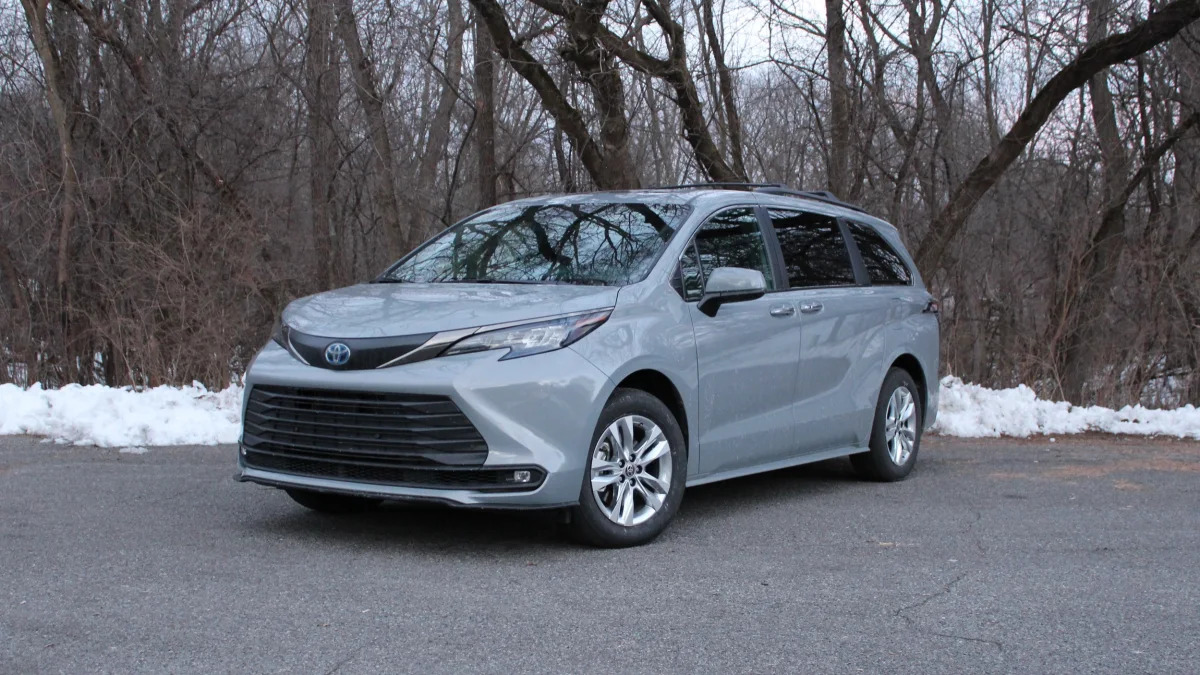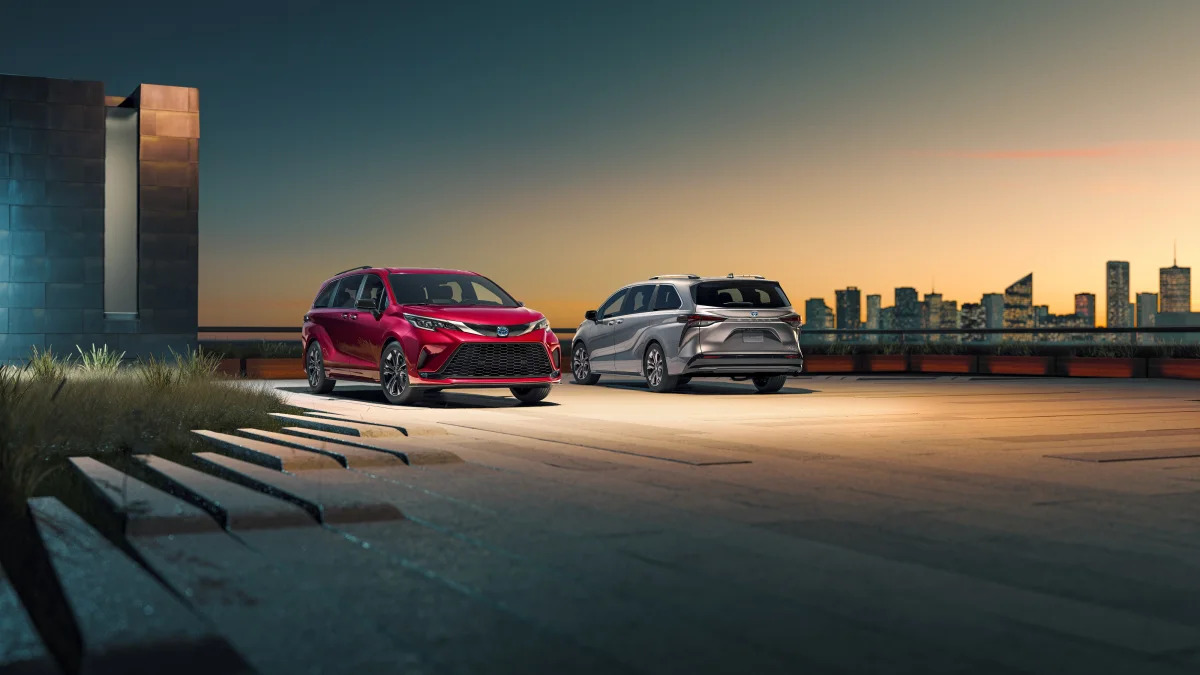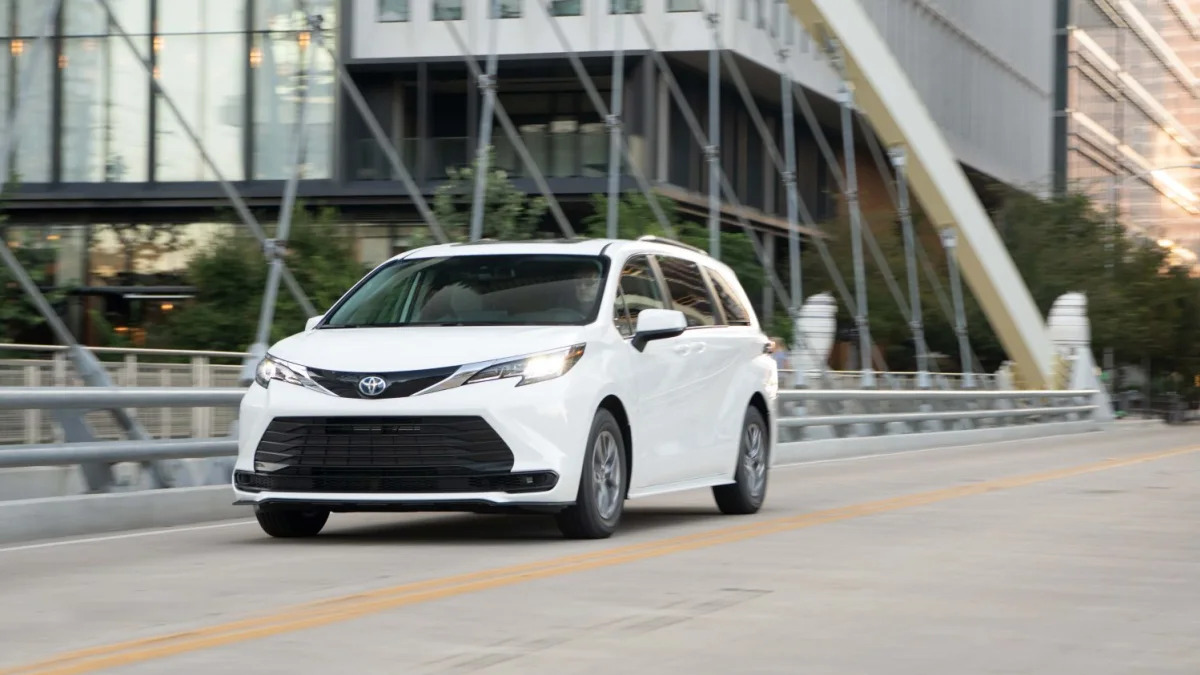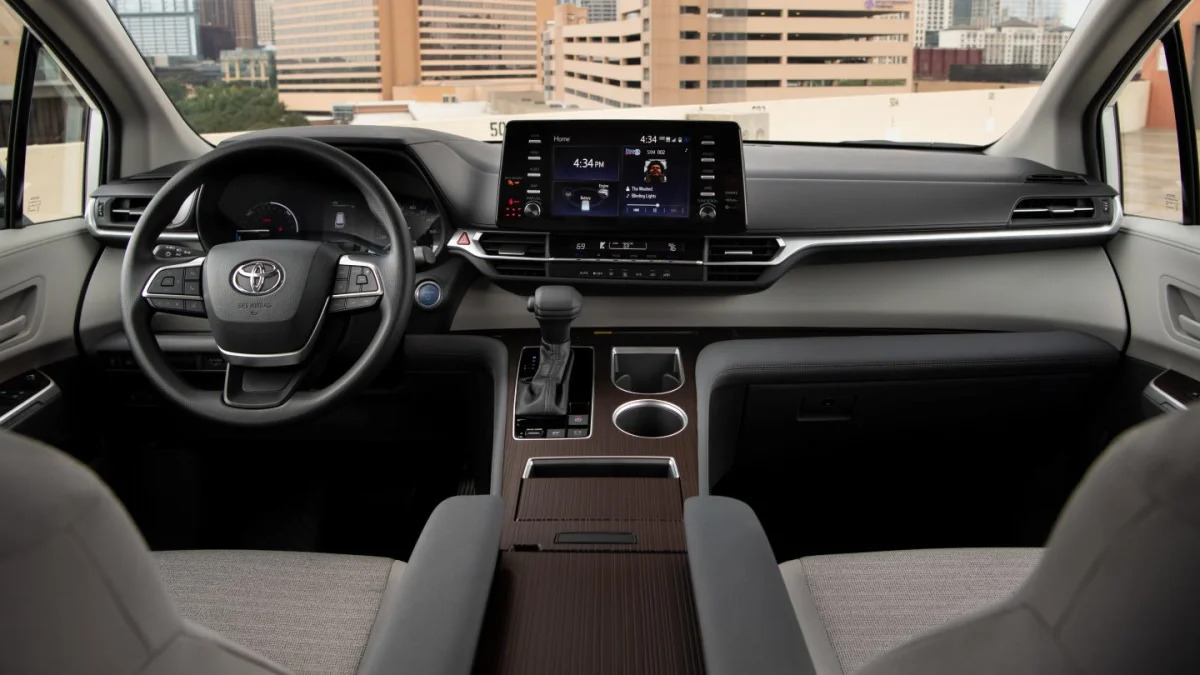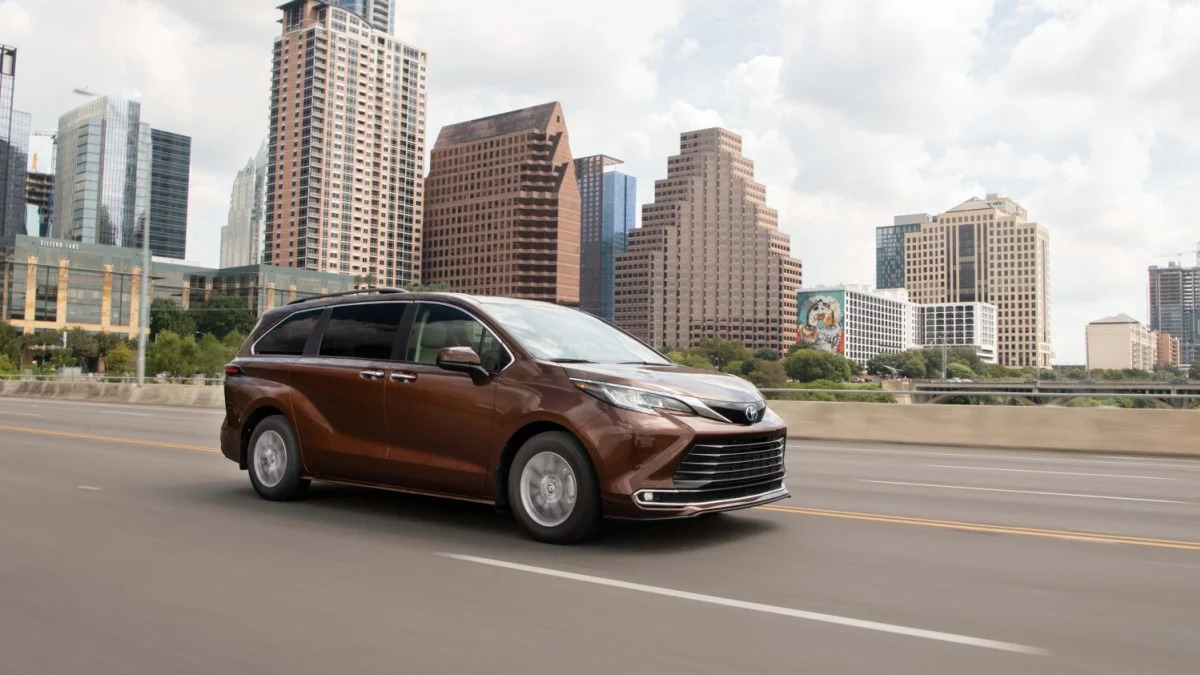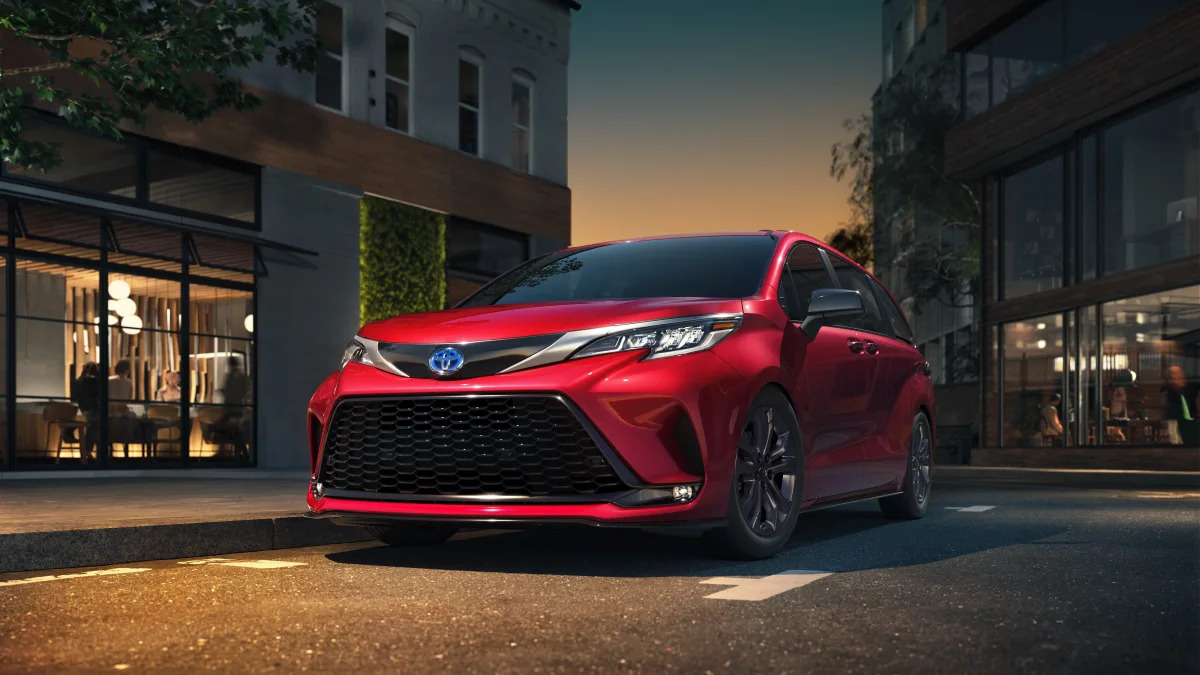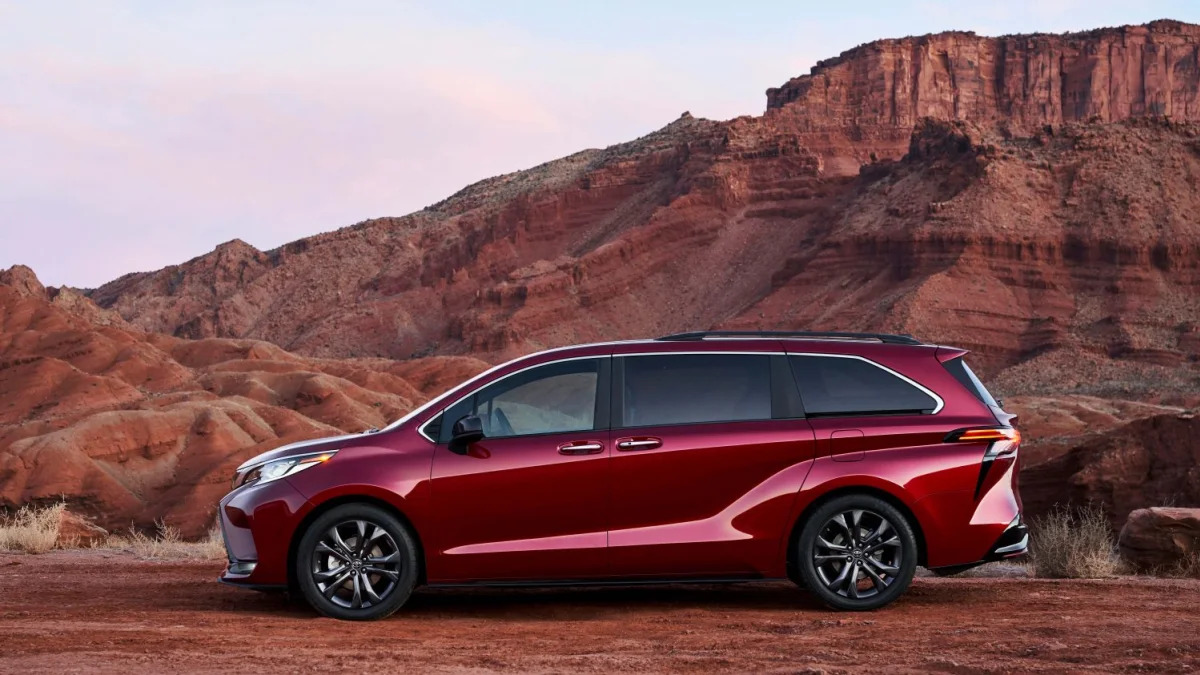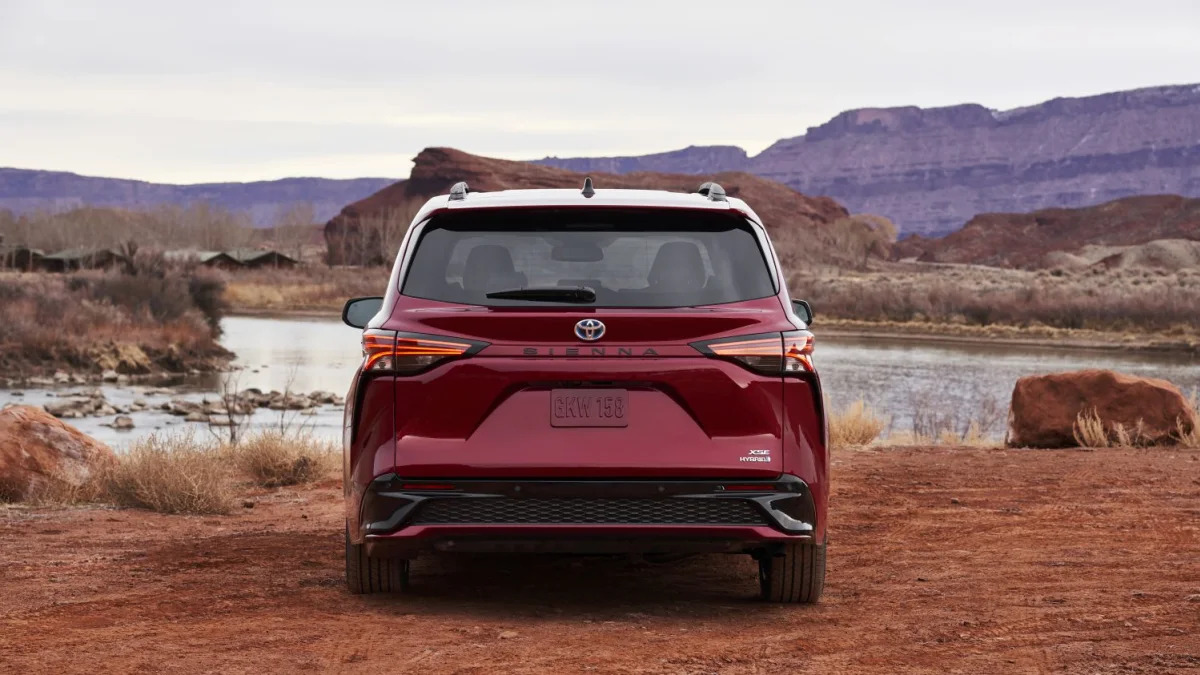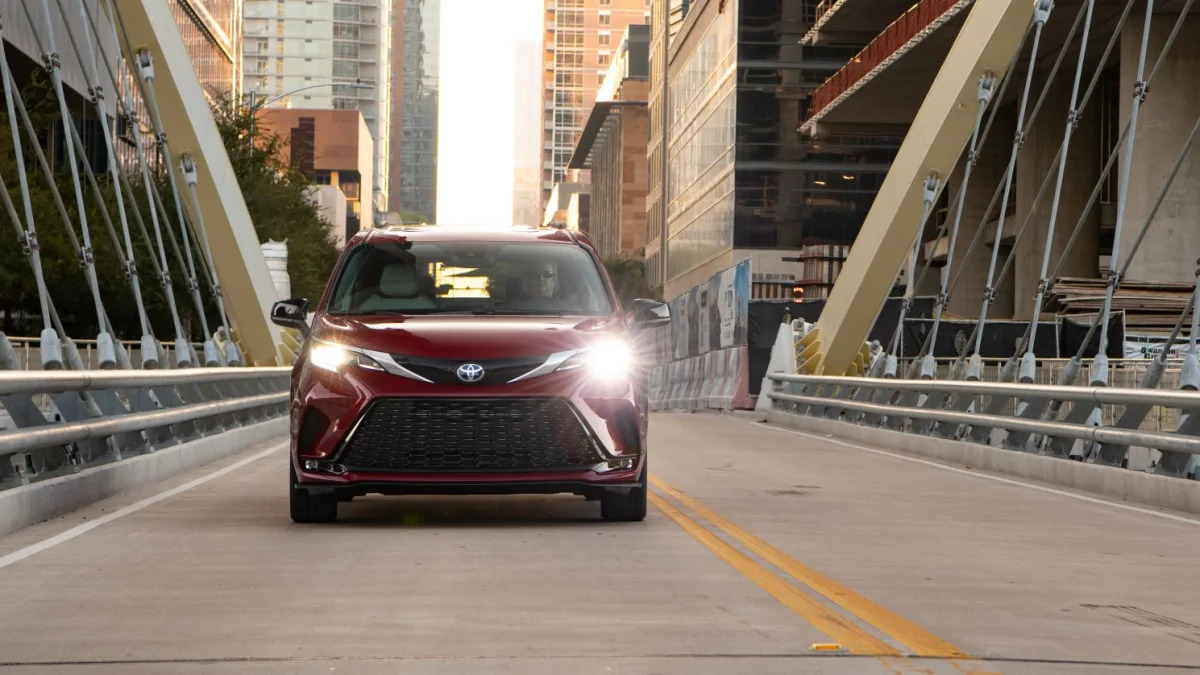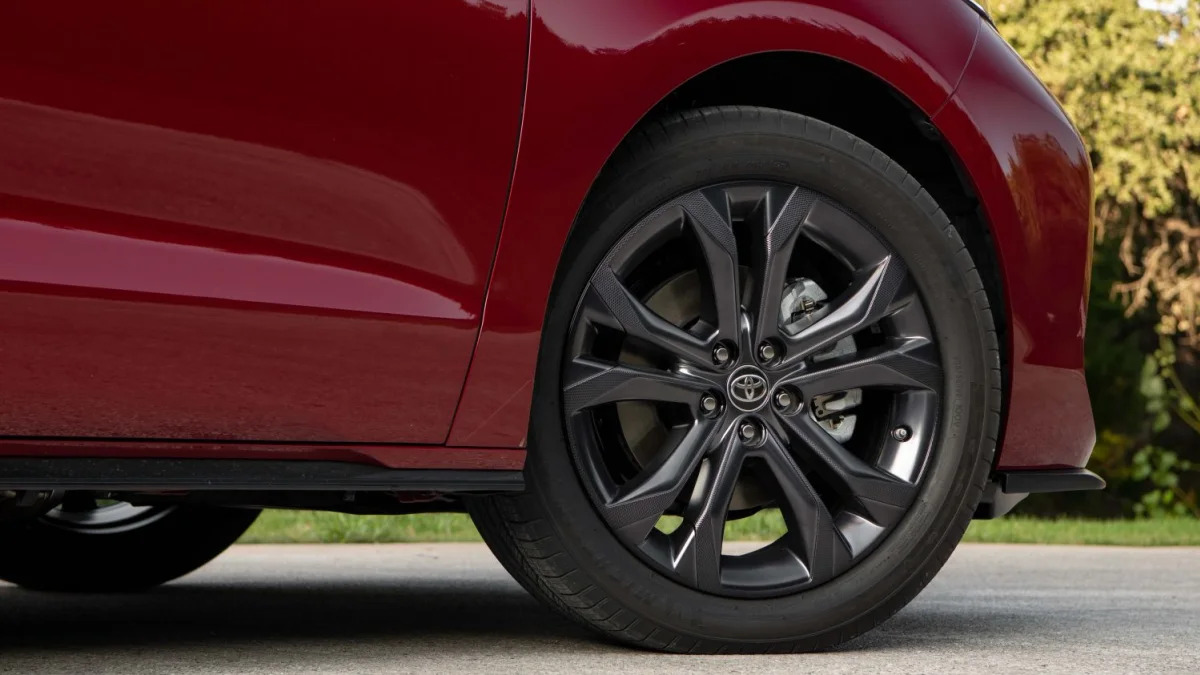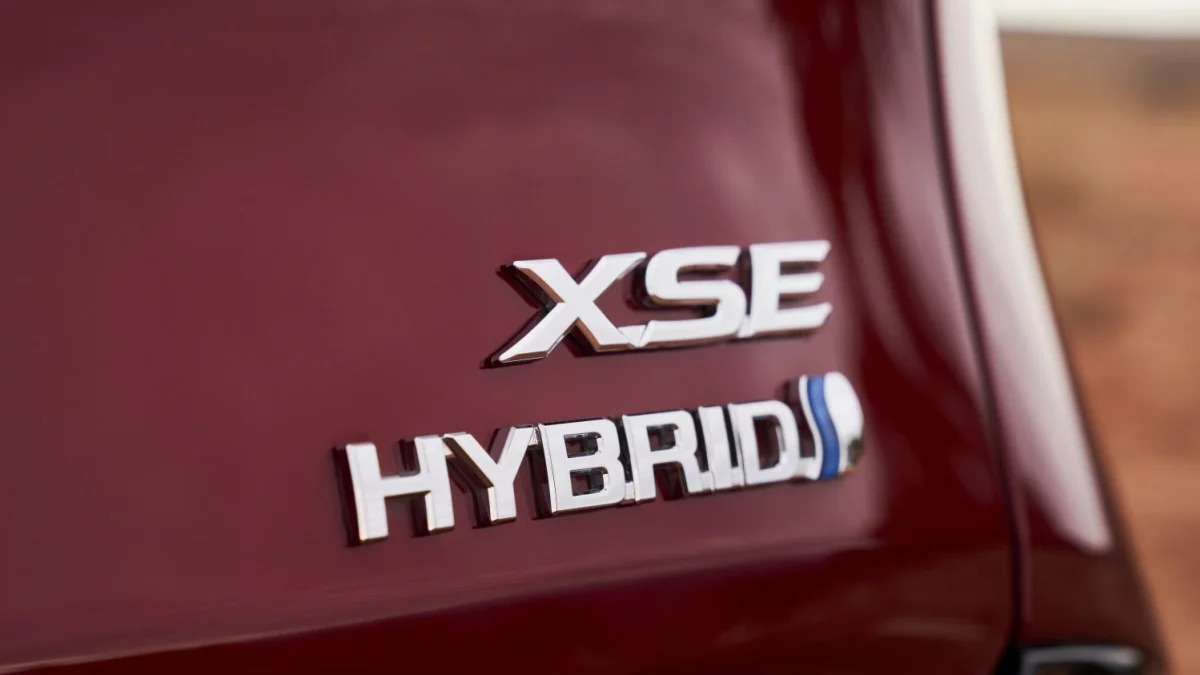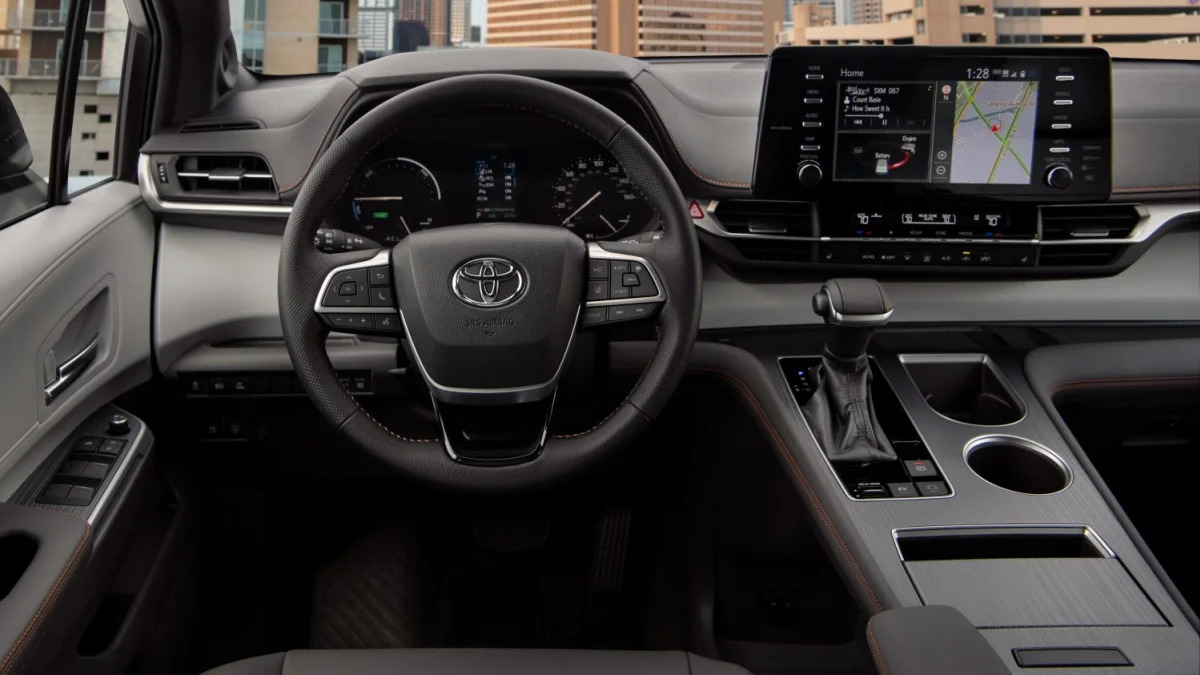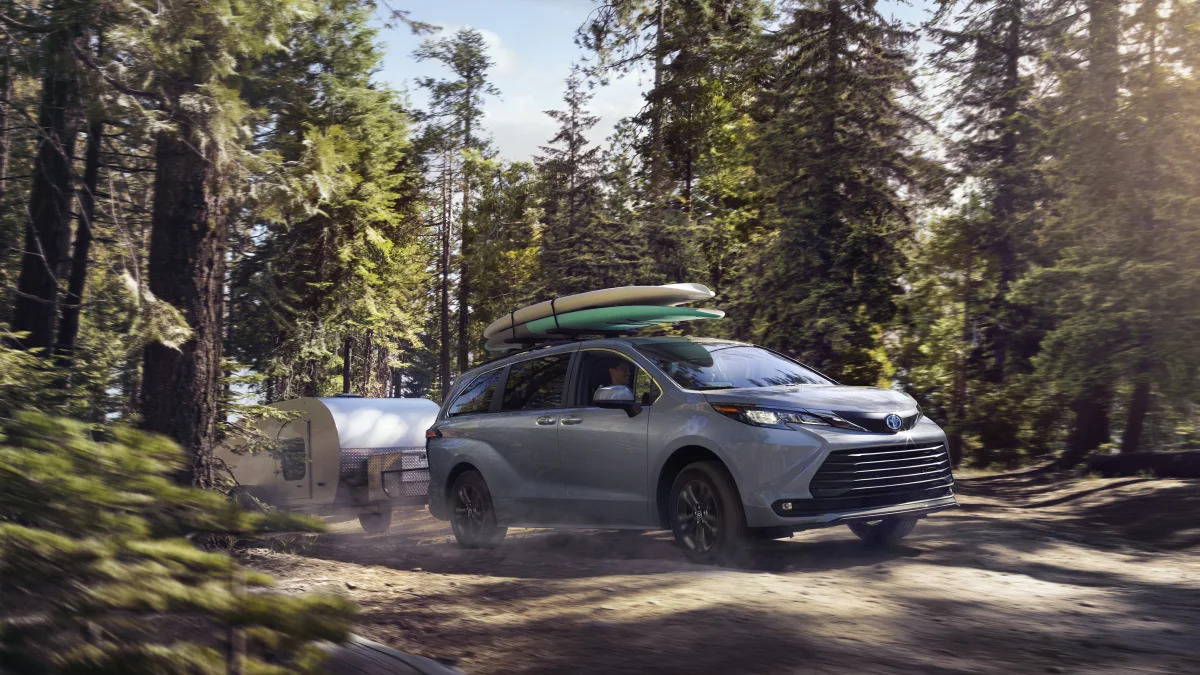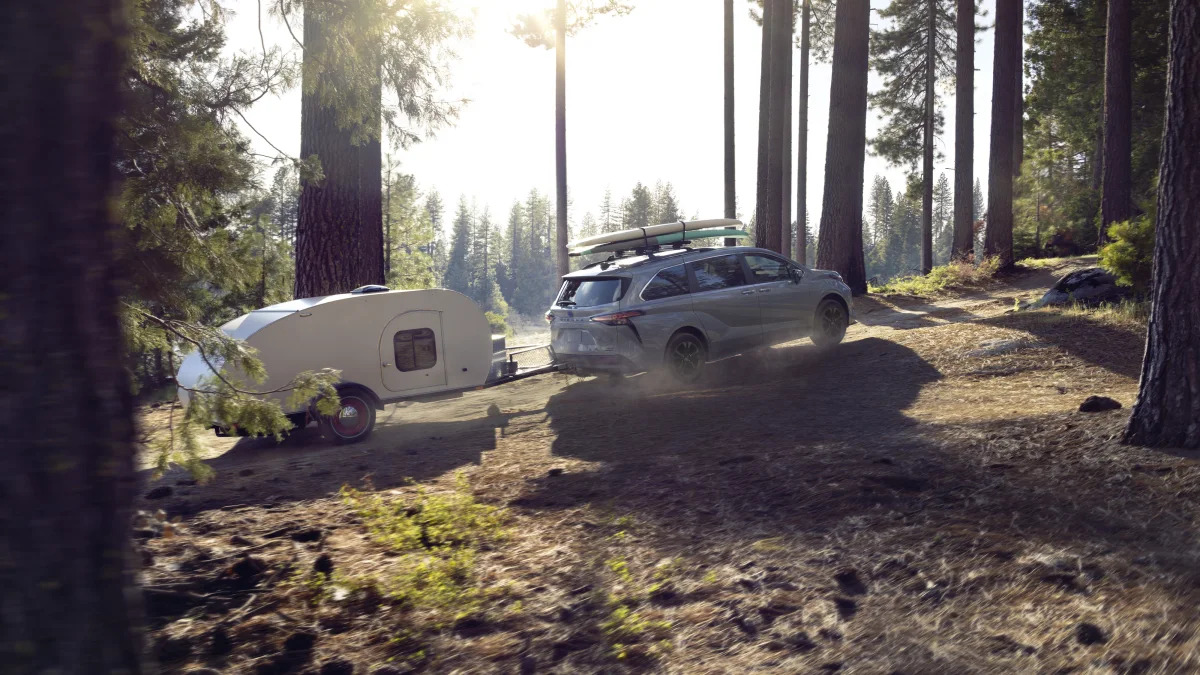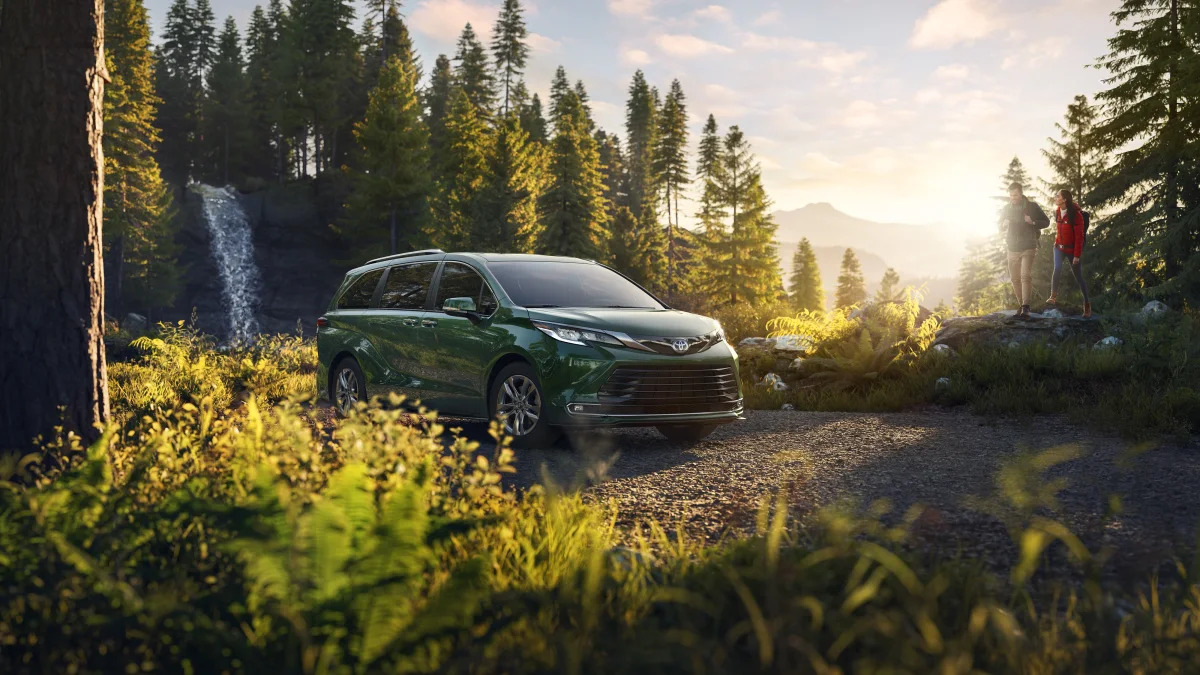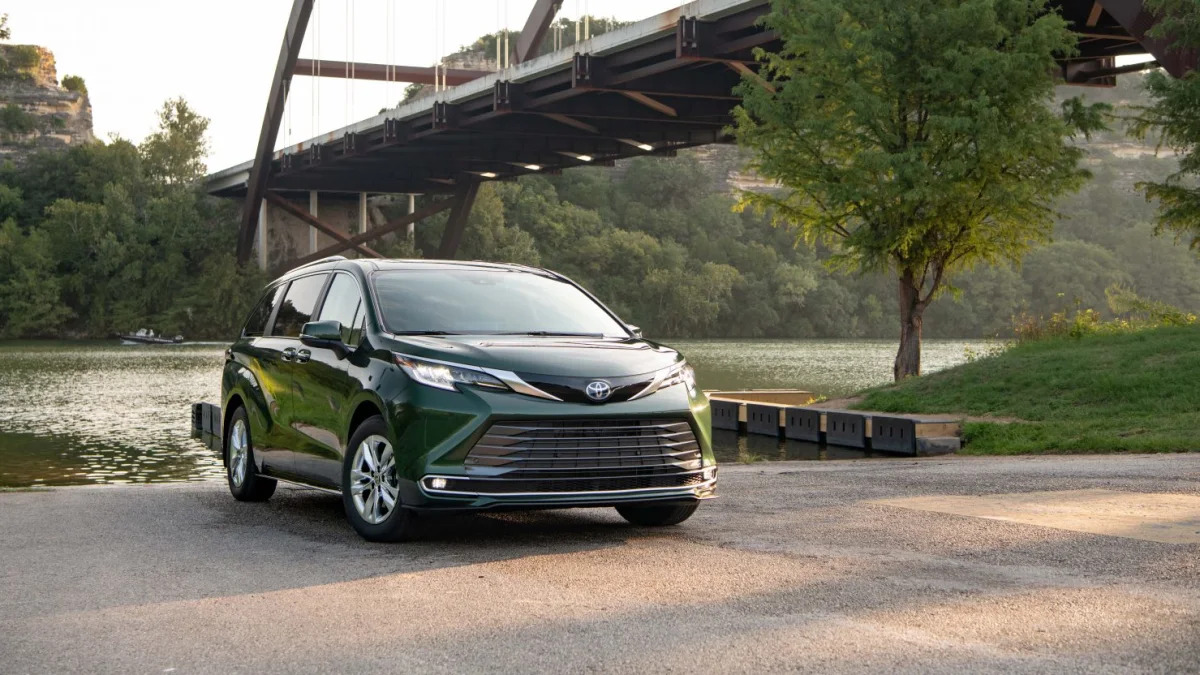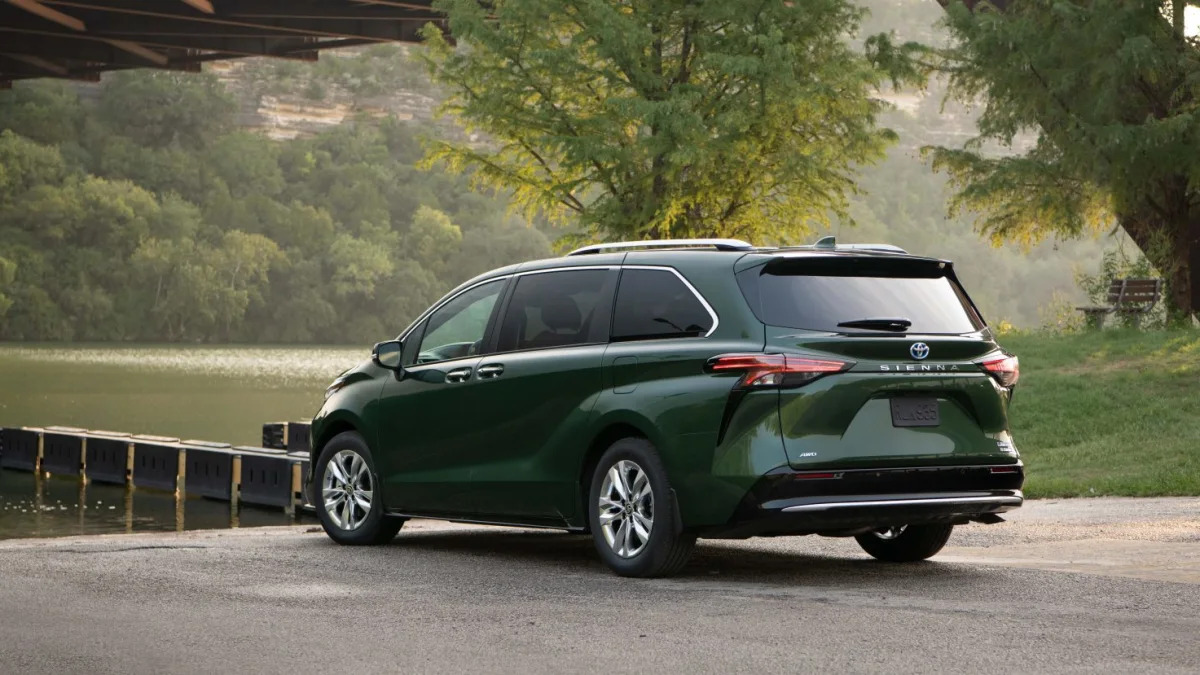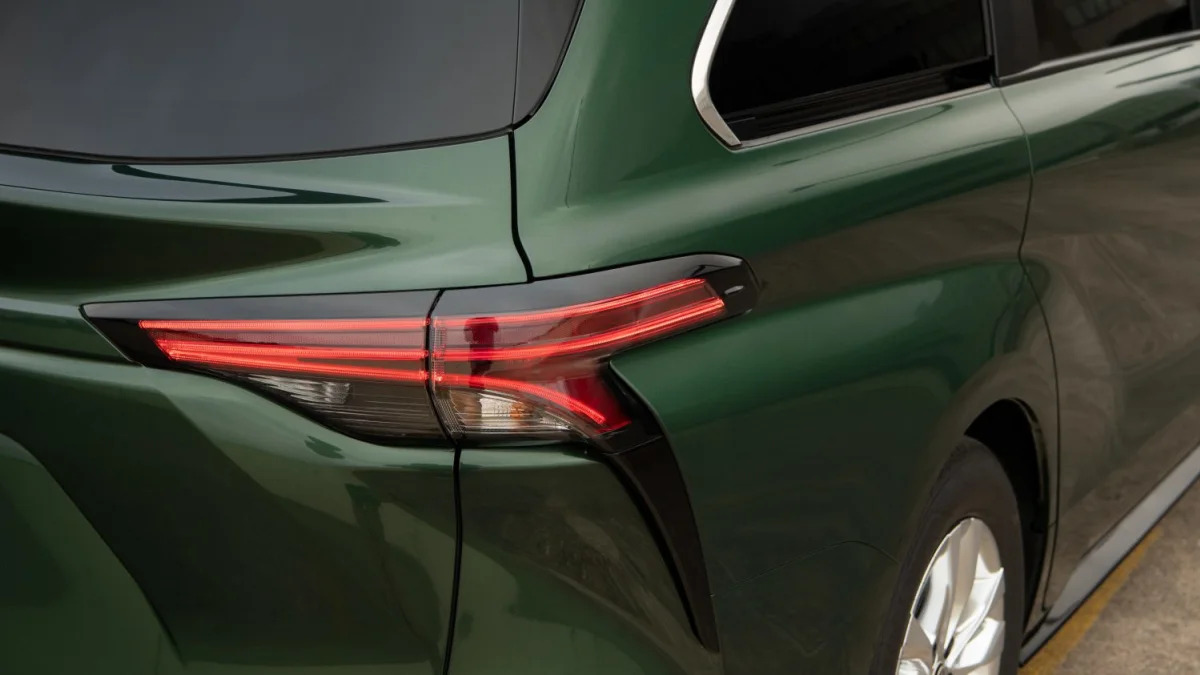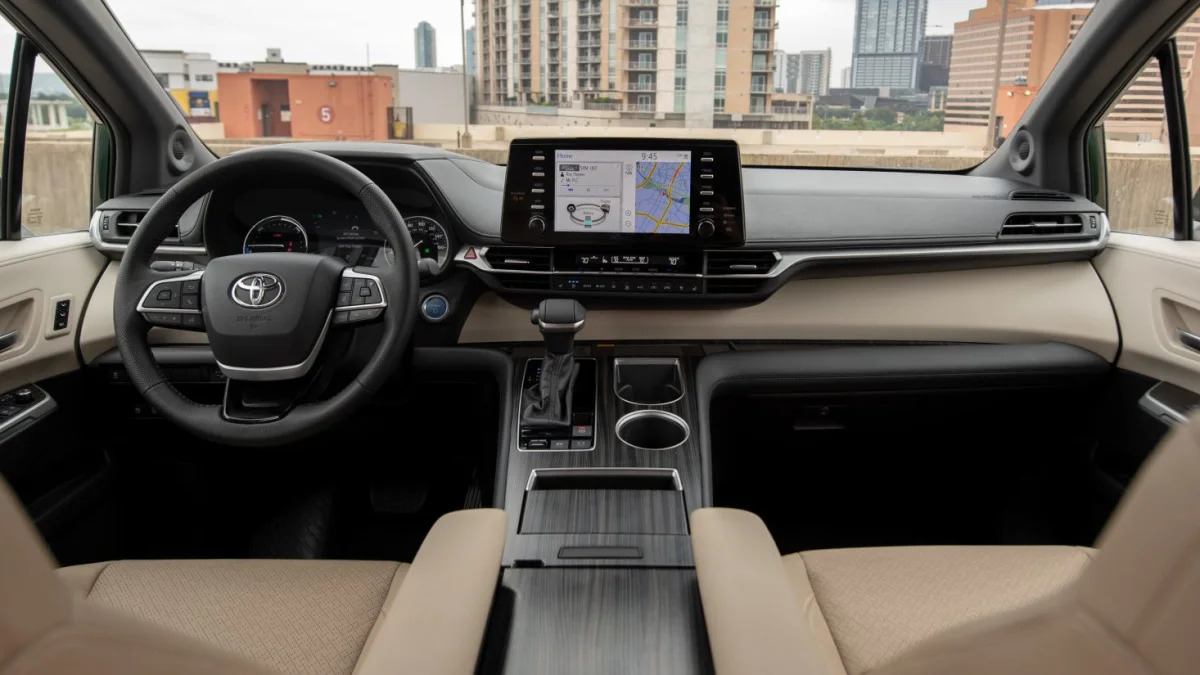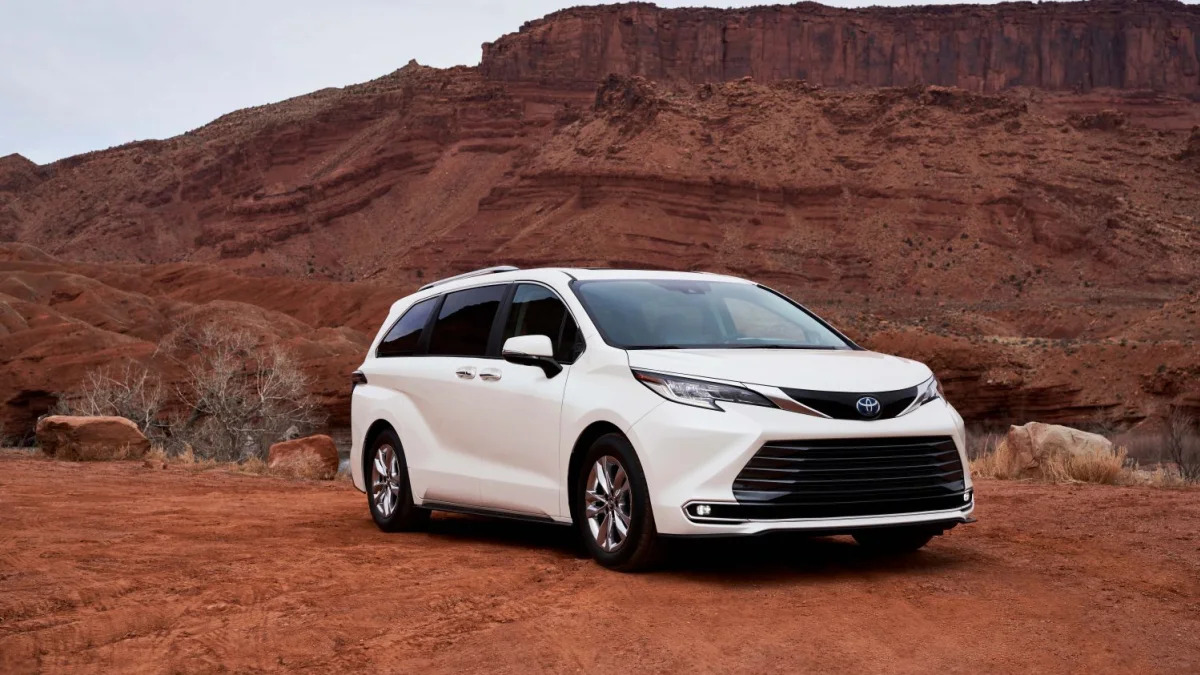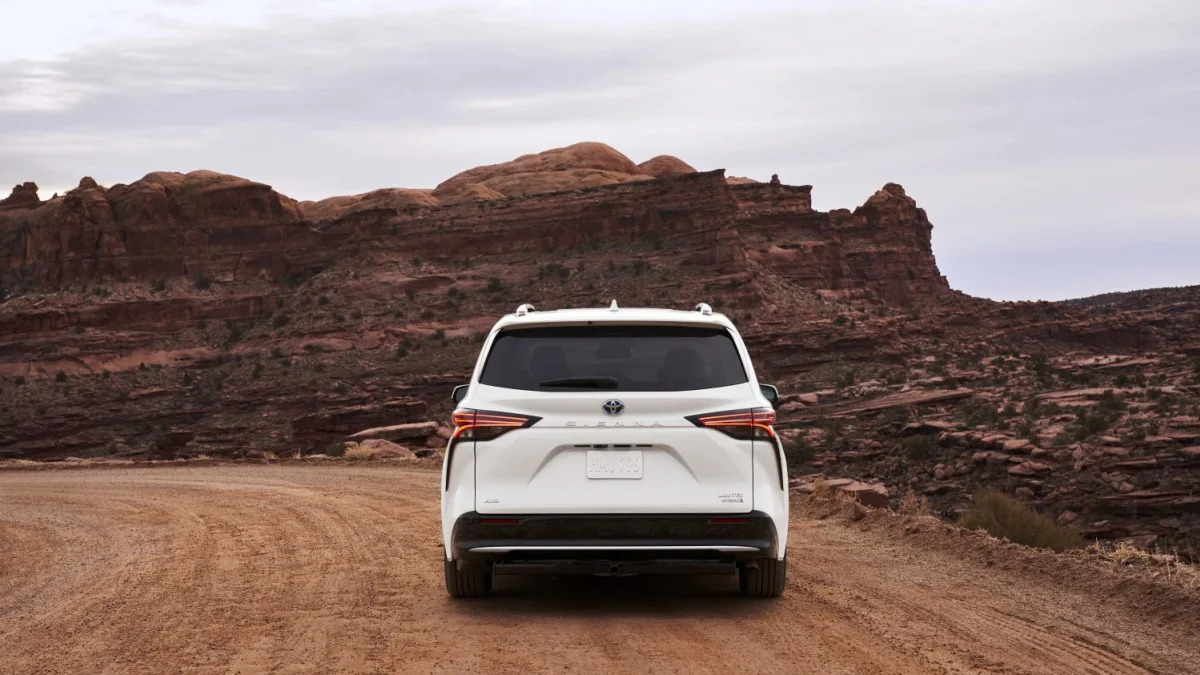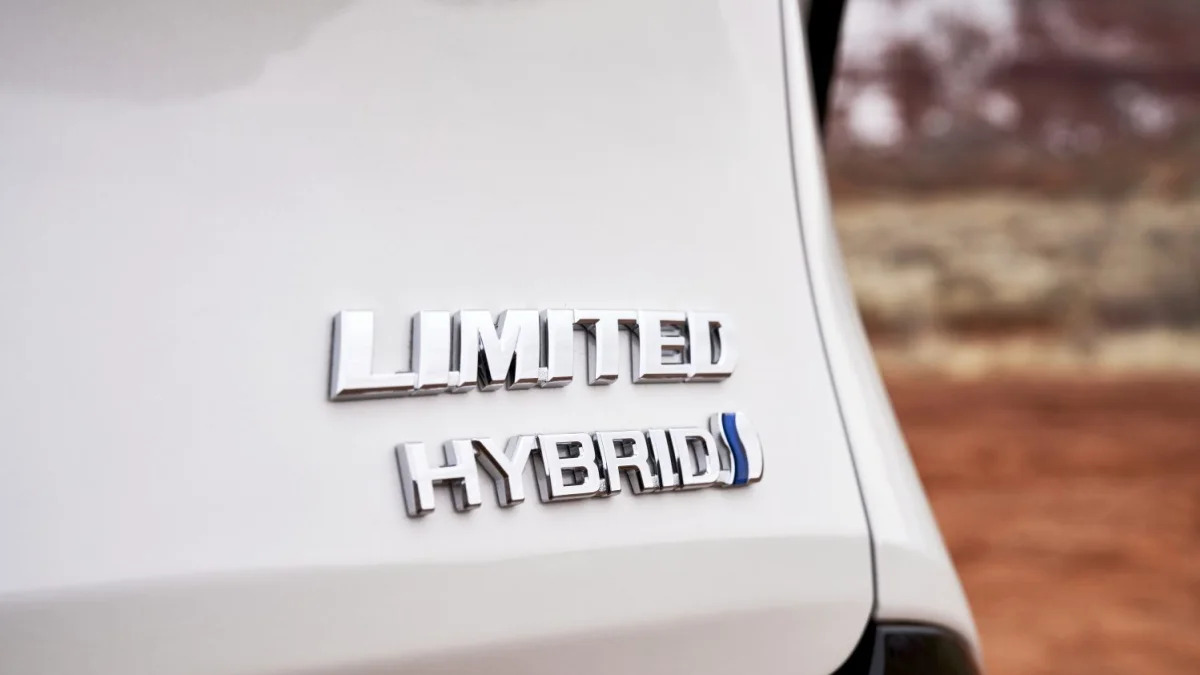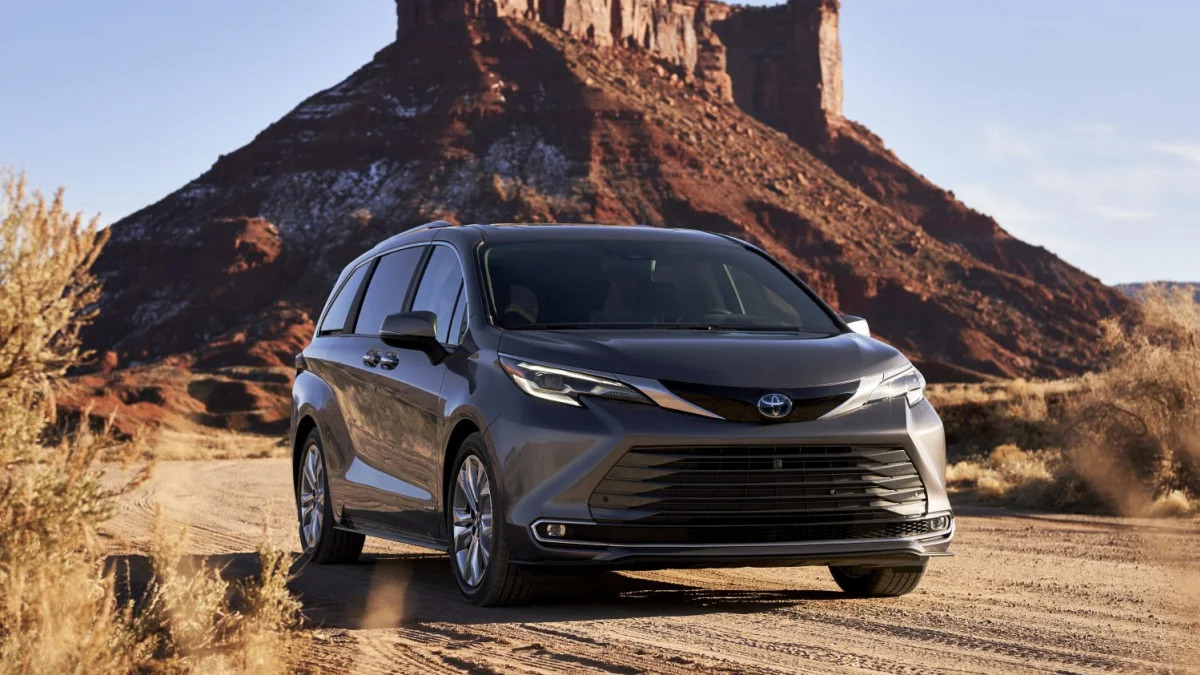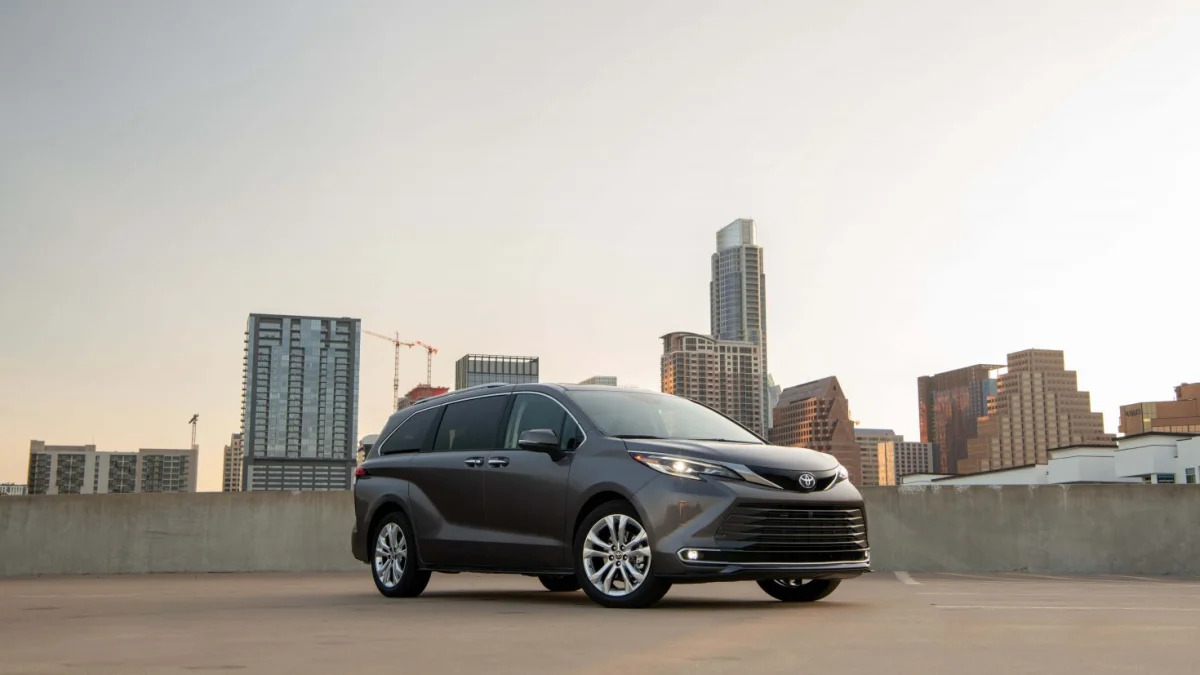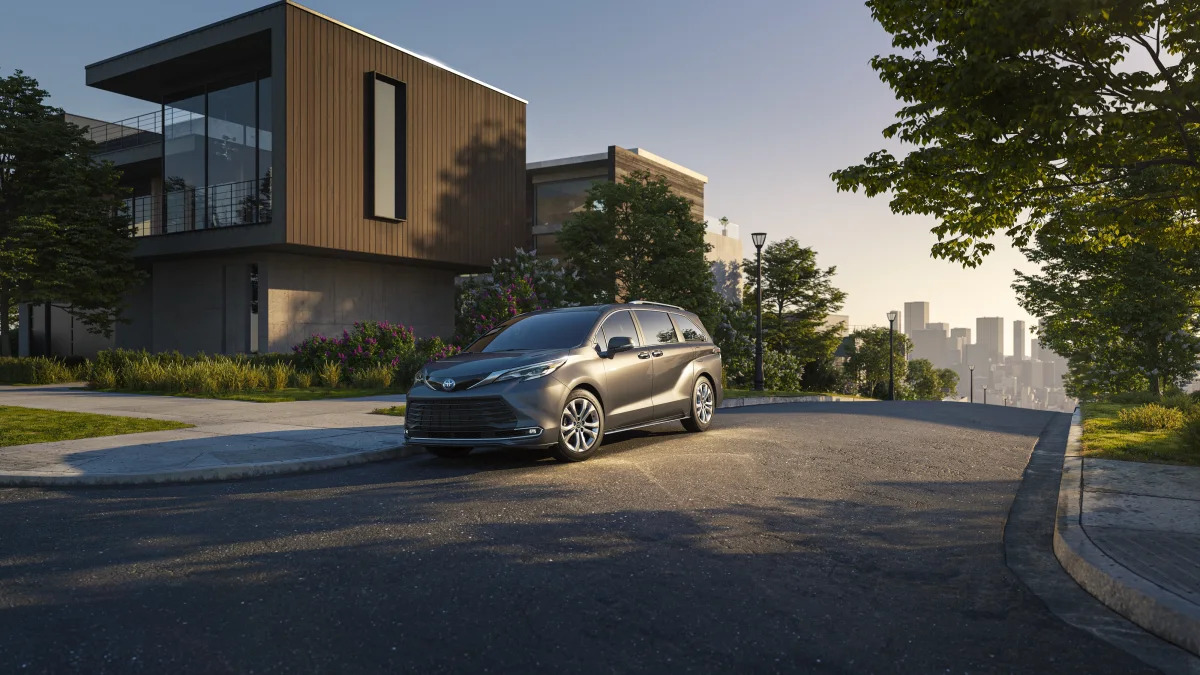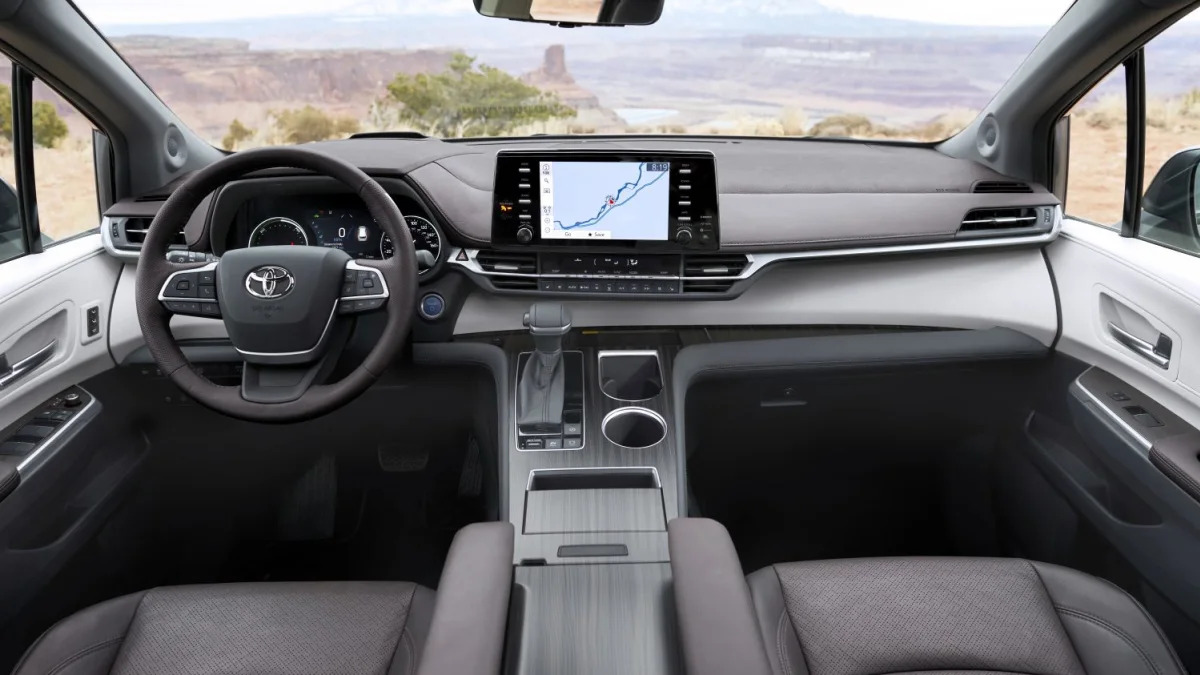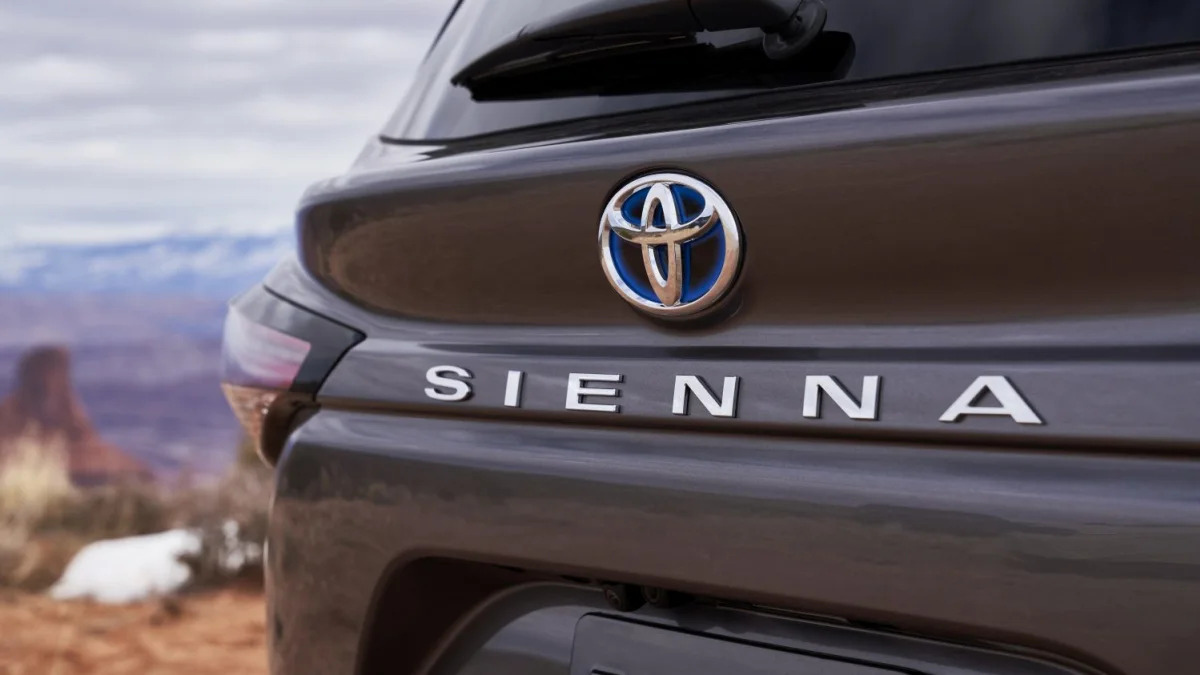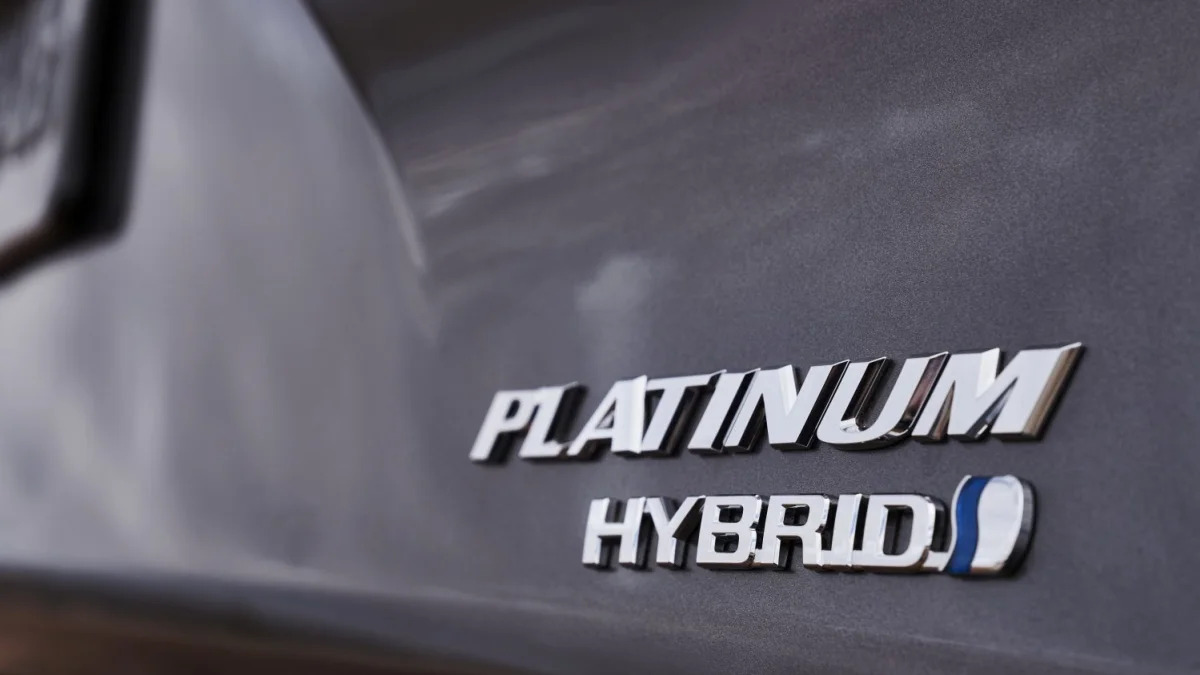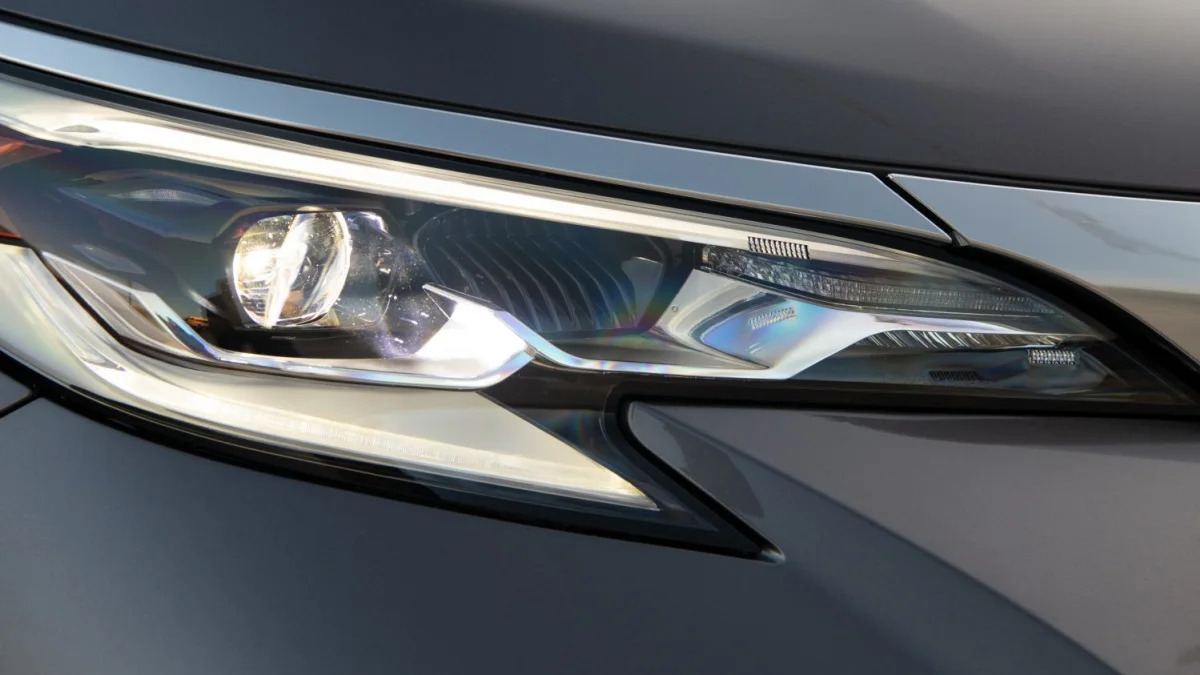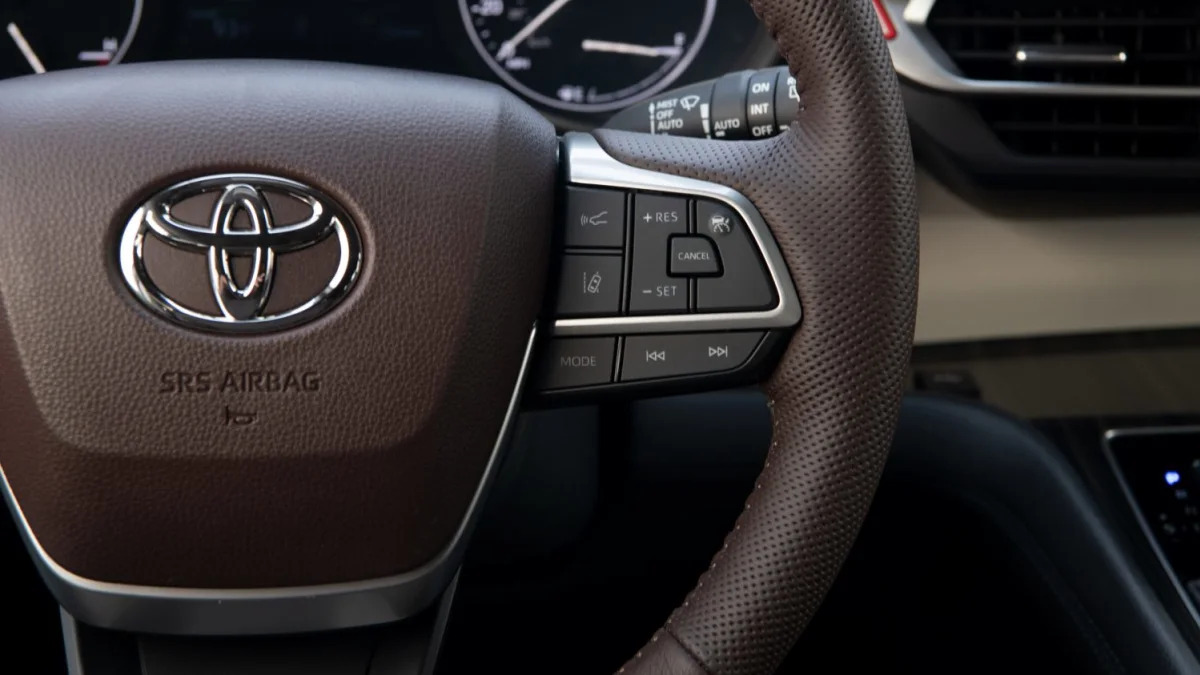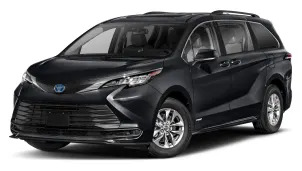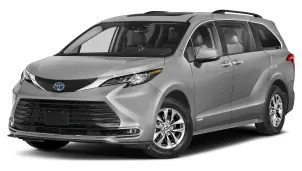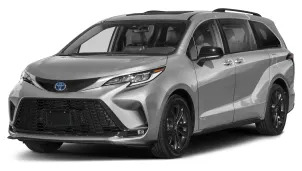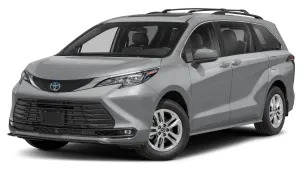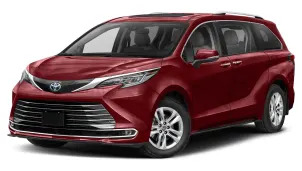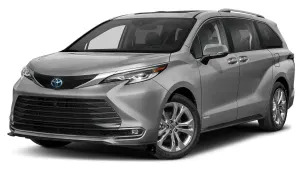2024 Toyota Sienna Review
Pros: Monumental fuel economy advantage; big-kid-friendly second-row; above average handling; interior storage
Cons: Not as powerful as other minivans; behind-the-times infotainment; cheap interior materials on lower trims
If cost-savings and fuel efficiency are top priorities, the 2024 Toyota Sienna is the minivan for you. Depending on whether you choose front-wheel drive or all-wheel drive, you’re going to get either 35 or 36 mpg from this massive family hailer. That out-greens all but the (more expensive) plug-in hybrid Chrysler Pacifica. The volatility of gas prices could see the amount of savings over a year of driving come and go, but there’s no doubt the Sienna will be the most frugal option of the bunch of other excellent minivans out there.
Thankfully, the Sienna backs up its efficiency with other excellent aspects such as how it drives, its attractive interior (particularly on higher trims) and great utility features like the Super Long Slide second-row. It’s not as quick in a straight line as some of its V6-powered competitors are, but it handles well for a minivan and can tow up to 3,500 pounds should the need arise. Our least favorite part about it is the loud and groaning engine, but it’s hard to complain too much when you’re getting over 30 mpg in a vehicle that is this utilitarian.
And while Toyota might be guilty of pricing its vehicles above the competition in many segments, the Sienna is priced similarly to its Pacifica and Honda Odyssey brethren. The Kia Carnival will undercut it on the low end, but look to the Sienna’s massive fuel economy advantage to save you money in the long run. For us, it comes down to the Sienna and the Pacifica Hybrid, which is why we performed a comparison test for you to check out all the advantages and disadvantages of each. In the end, though, we’d drive off in the Sienna.
Interior & Technology | Passenger & Cargo Space | Performance & Fuel Economy
What it's like to drive | Pricing & Trim Levels | Crash Ratings & Safety Features
What's new for 2024?
Changes for 2024 are slim, but one big one is the addition of a Premium Package for the sportier XSE grade that adds many of the luxuries you might find on higher trim levels like power leather seats, orange interior stitching, 7-inch instrument panel display and heated side mirrors. Wheel finishes for the Woodland and XSE AWD grades are changed, and both the LE and XLE grades get darkened headlight accents.
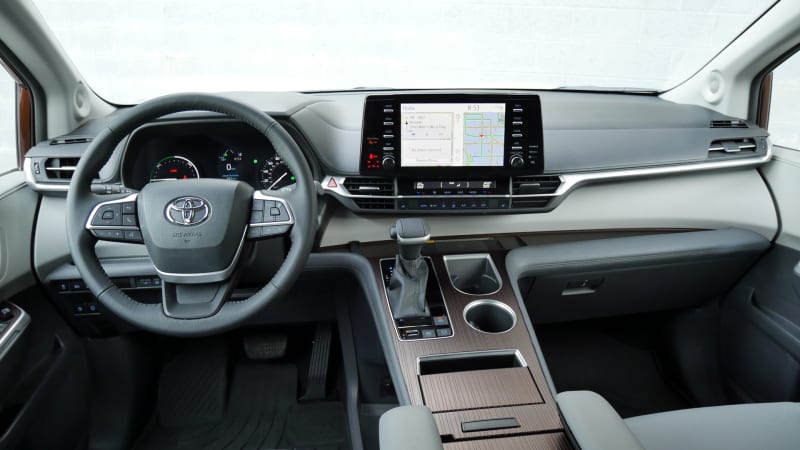
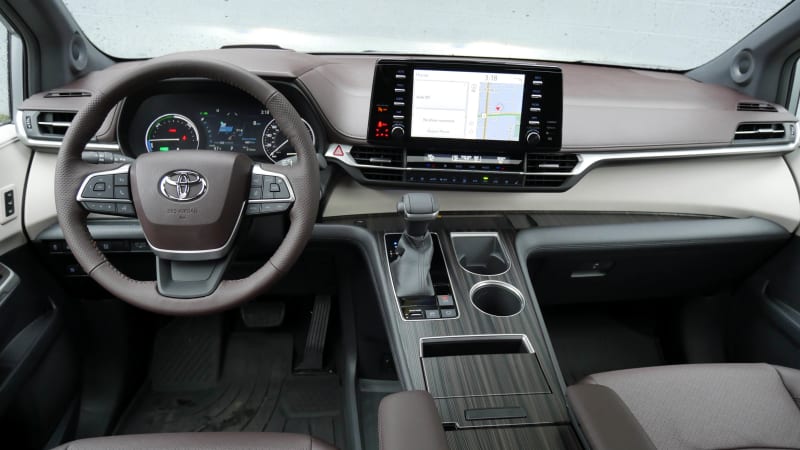
Sienna XLE and Sienna Platinum interiors
What are the Sienna interior and in-car technology like?
The Kia Carnival has since trumped it, but the Sienna's front cabin is still shockingly high-style for a minivan. The controls are canted ever-so-slightly toward the driver, while the high center console provides more of a car- or SUV-like feel. Nevertheless, that console is really just a bridge over a vast open canyon ripe for whatever you want to put down there (likely a purse or small diaper bag). There are a number of other handy places up front to stow things, as well, which we go over in this deep dive review of the Sienna's interior storage.
Unfortunately, we've found that cabin quality differs widely depending on trim level. The upper XSE, Limited and Platinum trim levels trim levels get padded, leather-look trim across the doors and a modern wood-look trim level across the console. By contrast, the lower XLE trim level, gets hard textured plastic instead of the padded stuff and bizarre rust-colored plastic trim with embossed lines and metallic specks (pictured below). It looks cheap, and it’s the difference between the Sienna being better than its competitors and being a little bit worse.
As for technology, all the usual features are present and the 9-inch touchscreen is easily seen, reached and operated, though it's still running a dated version of Toyota infotainment software versus the rest of the automaker's lineup (which admittedly has its own foibles). It's very much outdone by every competitor's system, especially Chrysler's and Kia's. The rear seat entertainment system also offers only one roof-mounted screen, versus the dual seatback screens of the Chrysler, and its USB ports are not as conveniently located as those of the Chrysler and Kia.
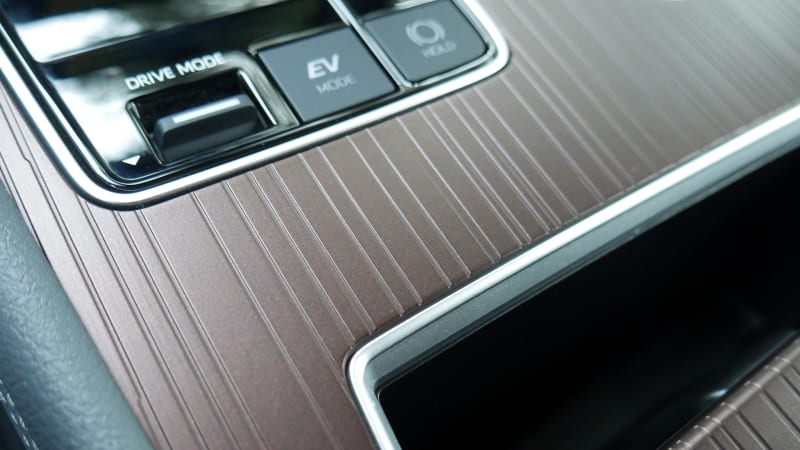
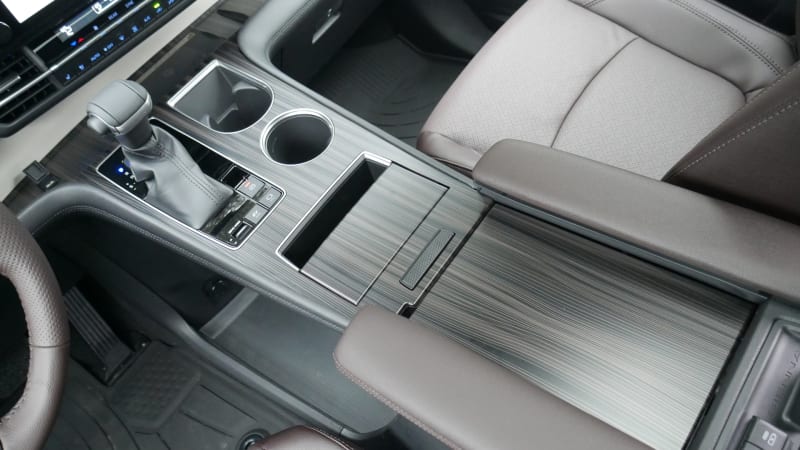
Sienna XLE and Sienna Platinum center console interior trims
How big is the Sienna?
The Sienna is comparable in size to the other minivans. We didn't find it any more maneuverable or less cumbersome to drive in tight places, and it offers the same sort of vast cargo space behind its third-row seat. Now, its specs indicate far less cargo space when the third row is lowered as well as when the second-row seats are removed, but we suspect this is due to a difference in the way Toyota measures cargo capacity. In reality, we think it's effectively similar.
Really, minivans most differ in terms of their second-row seating concepts. The Sienna offers a choice of two (and is most similar to the Kia Carnival). The eight-passenger model is probably better suited to parents with smaller kids since it comes with a removable second-row middle seat (pictured below) that you can affix a child seat to while keeping the outboard seats open. The seven-passenger setup found on upper trim levels features the new “Super Long Slide” second-row captain’s chairs, which slide further than its competitors by a considerable amount. Slid to the rear, they provide enough legroom for NBA forwards to kick back and relax. They also slide forward all the way to the front seats, making it more likely to fit whatever you need inside without moving the seats (while being more comfortable than the non-hybrid Chrysler Pacifica's Stow 'N Go seats). A second lever folds the seat cushion up and the seatback forward to either provide an easy ingress into the third row, or to maximize cargo volume even further.
There are certainly advantages to Stow 'N Go (for those who prioritize cargo-carrying versatility) and Honda's "Magic Slide" second-row (for those with multiple small children), so there isn't a right or wrong answer here. Choice is good. In this case, we think the Sienna's concept is best suited for families with older kids.
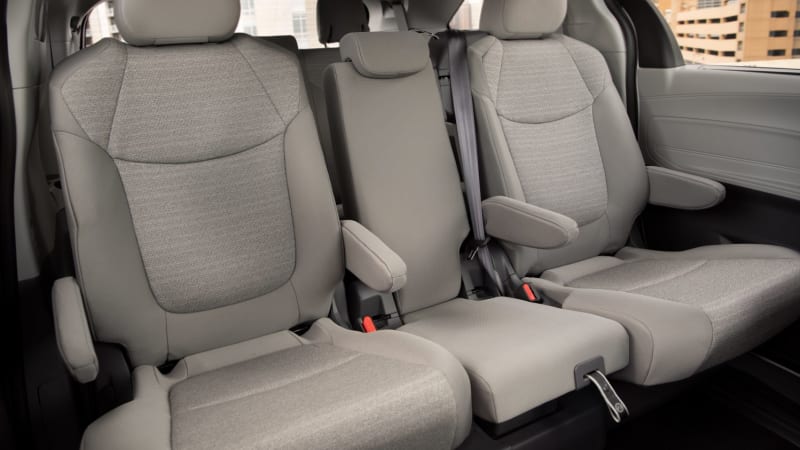
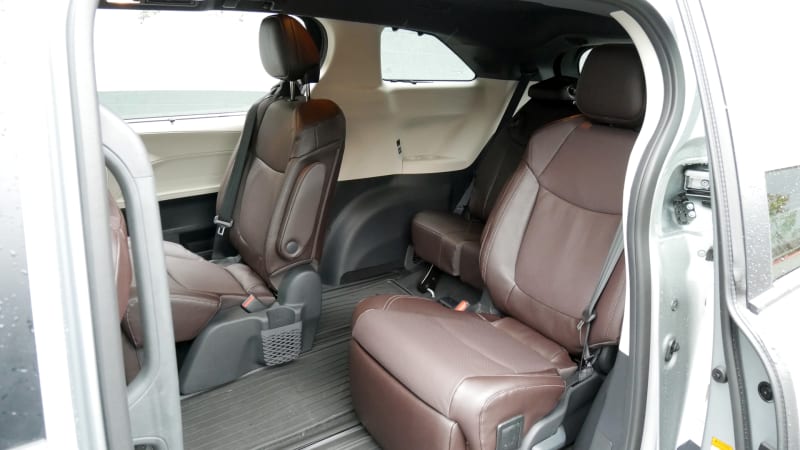
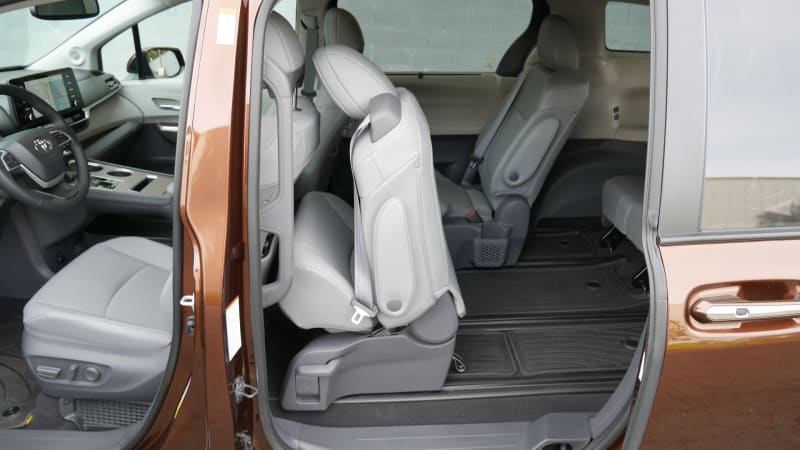
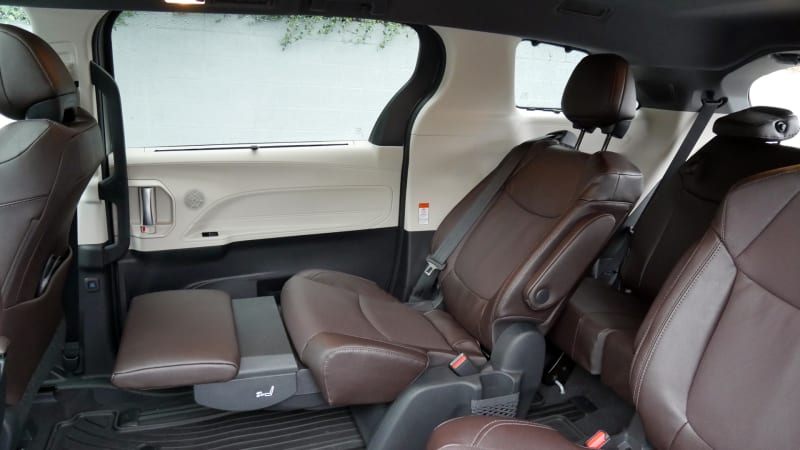
What are the Sienna fuel economy and performance specs?
Every 2023 Toyota Sienna is a hybrid. There's a 2.5-liter four-cylinder and two electric motors, plus a third added to create the available all-wheel-drive system. Its battery recoups energy from the brakes and engine (it's not a plug-in hybrid like the available Pacifica Hybrid, which has all-electric range and a higher price). Total system output is 245 horsepower, which is less than its V6-powered competitors.
Fuel economy is massively better, though. Toyota estimates the Sienna will get 36 mpg combined with front-wheel drive in EPA testing and 35 mpg combined with AWD. We averaged 39.4 mpg on a 454-mile road trip without making any effort to drive efficiently, but our long-term test of a 2023 Sienna Platinum AWD has returned an average of just over 31 mpg. The Odyssey, Carnival and V6-powered Pacifica get 22 mpg combined. Because of today’s high gas prices, that’s a difference that could equate to as much as $1,000 in gas savings per year with the Sienna. Even if gas prices go down, you’ll still be looking at a figure in the hundreds. That’s impossible to ignore.
What's the Sienna like to drive?
The hybrid-only Sienna certainly won't be the top choice for lead-footed minivan drivers, but that's a minority, if possibly an oxymoron. For everyone else, power should be perfectly adequate, while the instantaneous nature of the electric torque actually makes it feel quick off the line around town. You do have to live with droning from the e-CVT, though, especially when accelerating onto the highway.
Otherwise, the drive is smooth and mostly quiet with shockingly responsive handling. When not accelerating, the engine makes little sound. Noise from the wind and road are mostly filtered out before intruding into the cabin. The suspension is taut enough to provide good support for the Sienna’s long, bulky body, but not punishing over the craggy roads of southeast Michigan and northwest Oregon where we drove the Sienna. It's actually now the most engaging minivan to drive. This is in contrast to most versions of the old Sienna, which could be rather floaty. We used to suggest buyers go for the more controlled Sienna SE trim level, and although the similarly "sporty" new XSE trim does sharpen the Sienna, it's certainly not a must-buy for those who prefer a more composed or engaging drive.
As for the Woodland Edition, do not expect the Subaru Outback of minivans. It doesn't drive much different than other Siennas, either. Yes, it has extra ground clearance, but with only 0.59 inches more than a Sienna XLE at 6.96 inches, there's really only enough to (maybe) prevent a tow hitch from scraping on a driveway (as it will in other Siennas). So with no other real mechanical improvements, and barely any aesthetic differences, the Woodland feels like a missed opportunity to create something truly special for those looking to go on extra-adventurous family trips.
What other Toyota Sienna reviews can I read?
2021 Toyota Sienna vs 2021 Chrysler Pacifica Hybrid Comparison Test
We test our top two-recommended minivans in this full comparison test. It comes down to one point out of a possible 230. (Spoiler Alert: the Sienna wins)
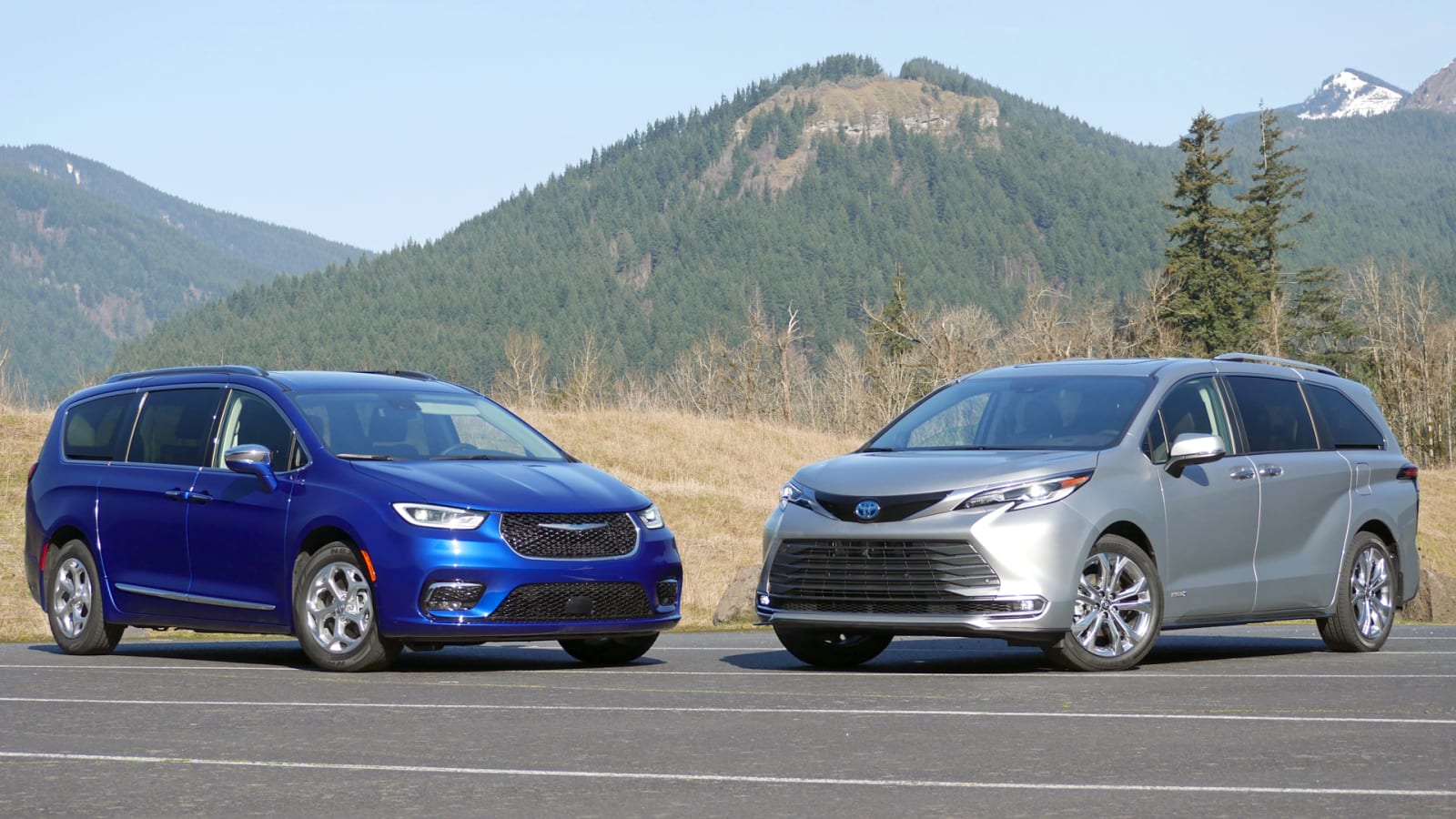
2021 Toyota Sienna XSE First Drive | It's the "sporty" one
The XSE features unique styling along with suspension and steering differences that result in a different, sharper driving experience. Unlike the last Sienna, we don't think getting this "sportier" version is a must for those who prefer a more responsive driving drive, but it certainly doesn't hurt.
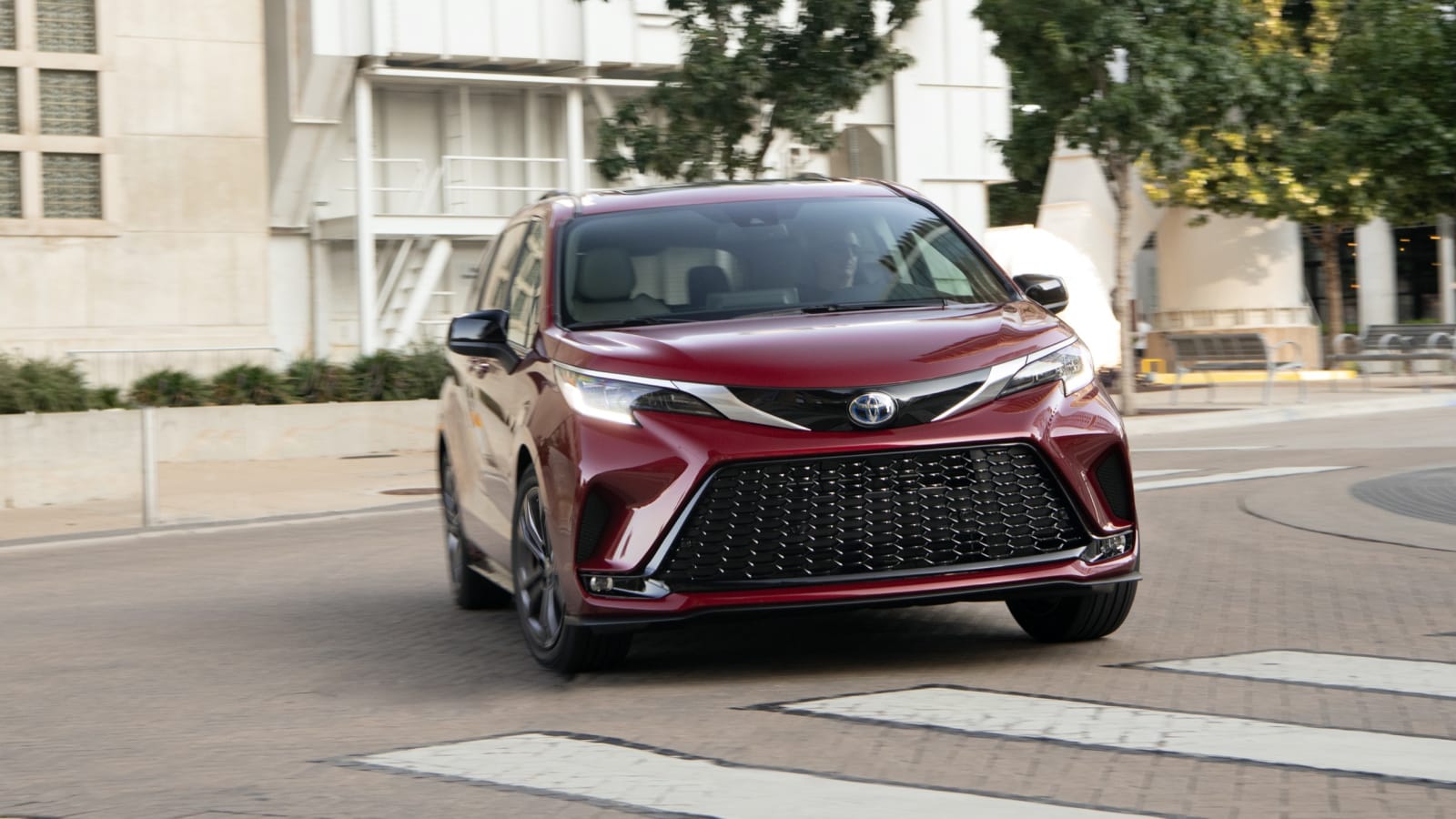
2022 Toyota Sienna Woodland First Drive Review: Not woodsy enough
The Woodland is a smart idea, but doesn't go far enough in terms of style or capability.
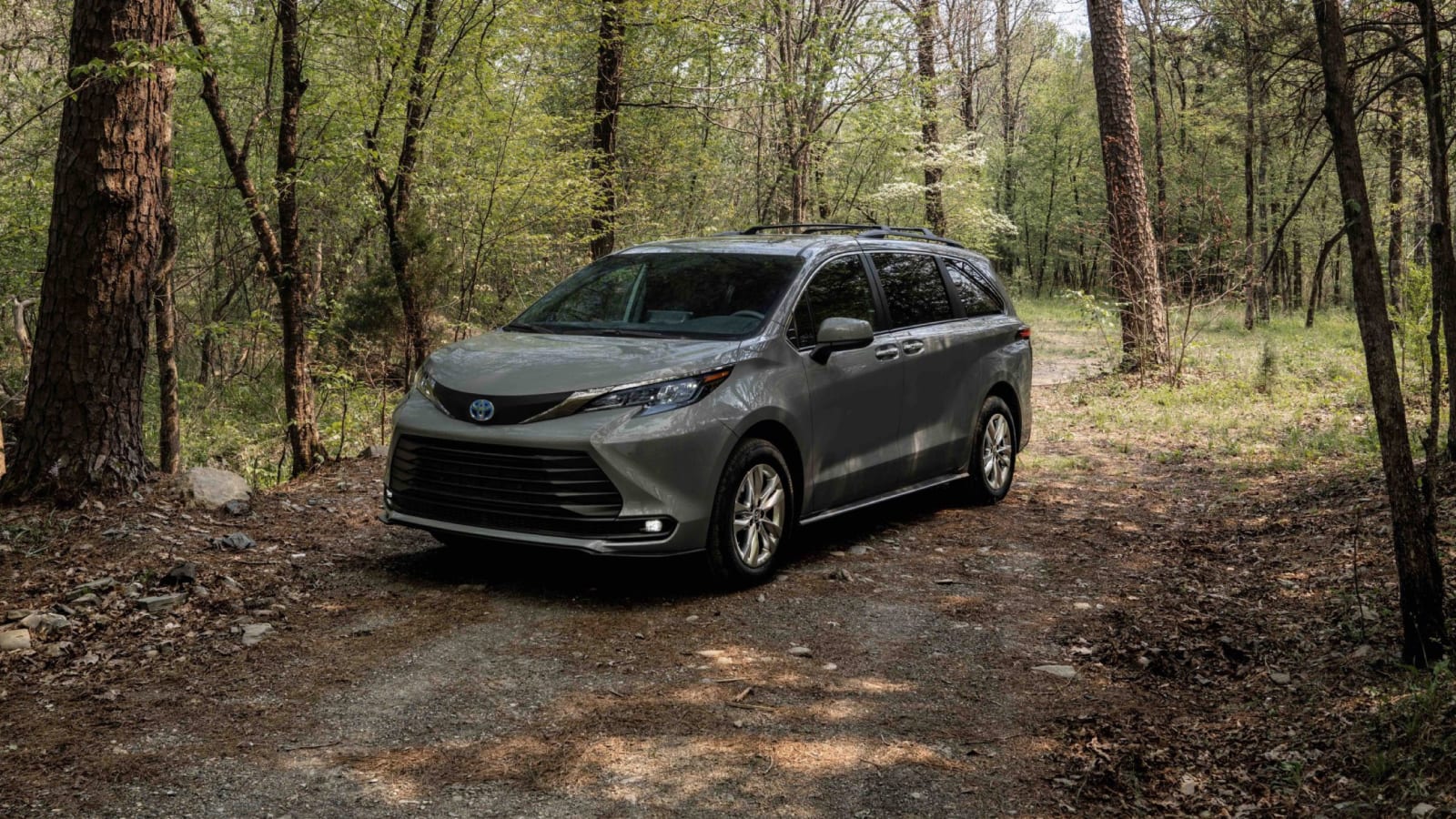
2021 Toyota Sienna First Drive | Functional efficiency with style
Our first review of the Sienna, covering in more detail its changes and new features.
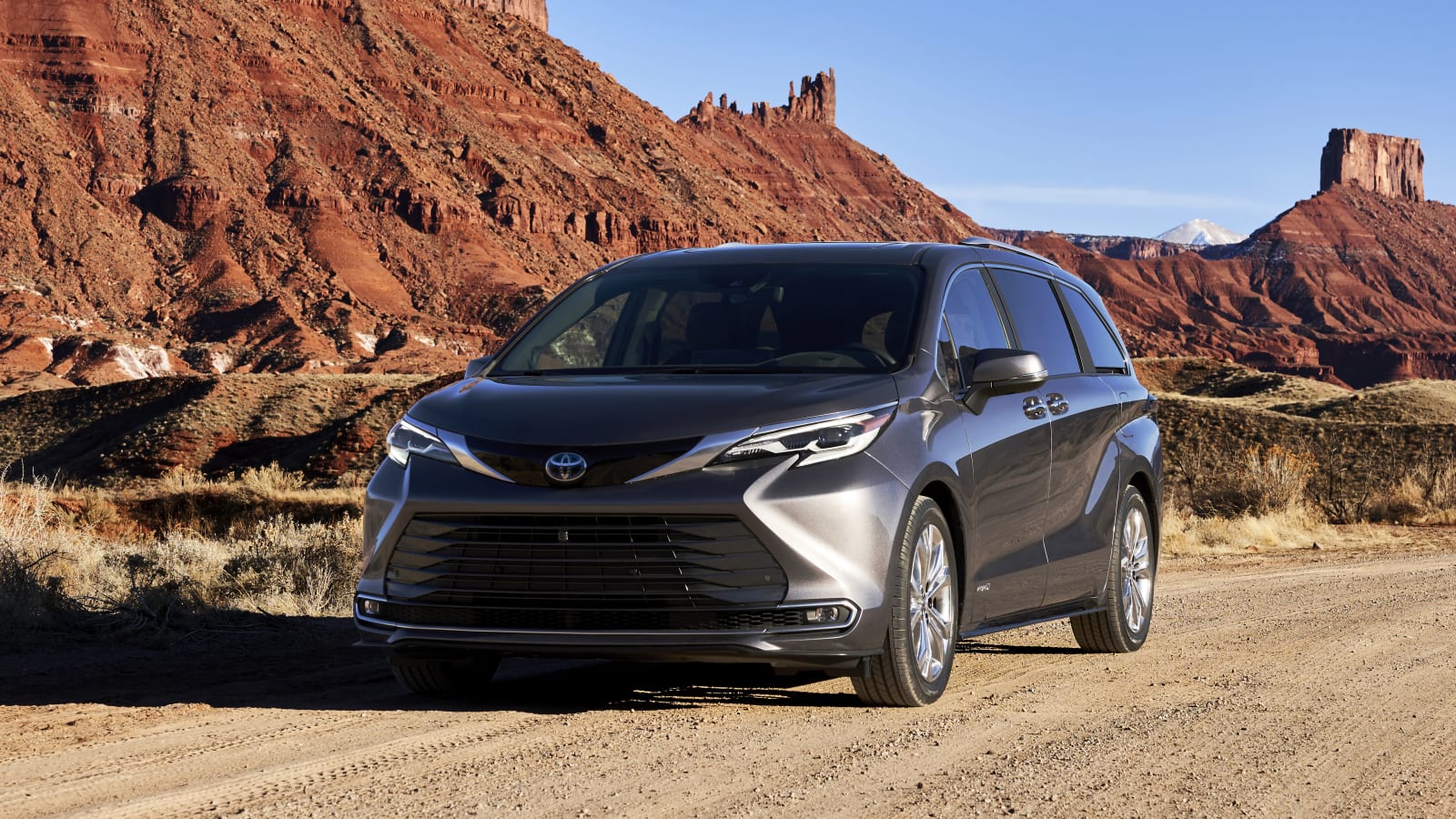
2021 Toyota Sienna Interior Storage Review
We go full James Cameron in this deep dive into the Sienna's interior storage, filling all 18(!) cupholders and its multitude of bins.
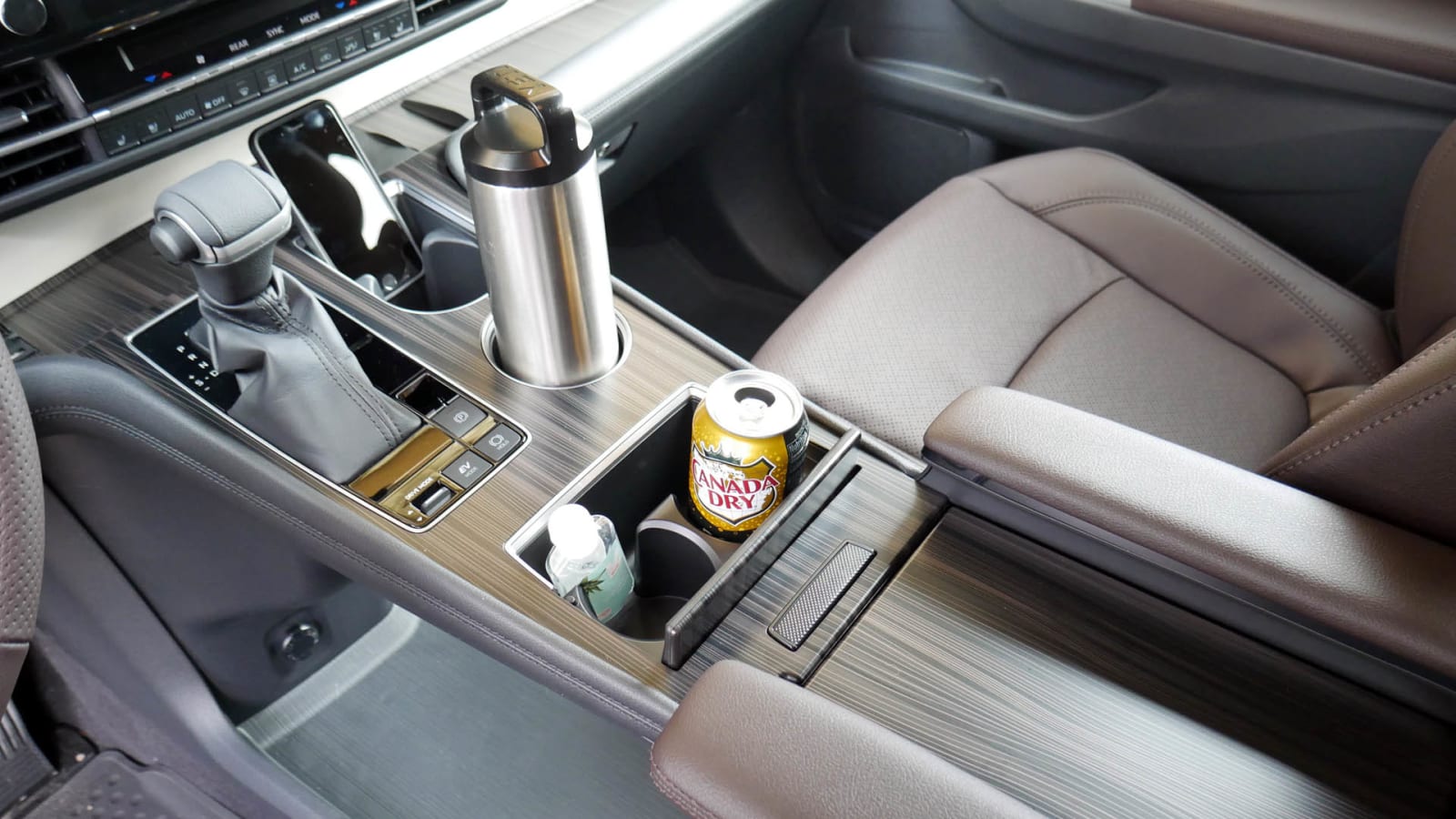
What is the 2024 Sienna's price?
The Sienna’s prices go up by about $300 for 2024, making the new base price $38,580, including the $1,395 destination charge. The minimal increases only paint part of the story, however, as Toyota increased the price during the 2023 model year, making the true difference in year-to-year pricing rise above $1,000 for many trims. Before you get too steamed by that, though, know that the Chrysler Pacifica and Honda Odyssey have similarly high base prices. Only the Kia Carnival, which comes in at $34,565, is notably lower.
Despite being considered the “base” Sienna, the LE is more akin to the mid-grade trim levels of previous years so you’re at least getting the sort of equipment appropriate for its price point. Besides the increases in equipment and higher-quality cabin materials (see Interior section above), there are some key differences with the trim levels. The XSE features sportier styling and chassis tuning, while the Woodland features a modest ground clearance increase and slightly more rugged styling cues.
All prices below include the destination charge.
LE: $38,580
XLE: $43,890
XSE: $49,140
Woodland: 49,520
Limited: $50,840
Platinum: $54,040
What are the Sienna safety ratings and driver assistance features?
Every Sienna includes forward collision warning with automatic emergency braking and pedestrian detection, lane-departure warning with steering assistance, blind-spot and rear cross-traffic warning, and full-speed adaptive cruise control. Automatic reverse emergency braking is included on all but the base LE. Also standard are Toyota's Safety Connect emergency telematics services, along with a number of atypical airbags: driver's knee, passenger seat under-cushion (prevents submarining under a seatbelt) and second-row seat-mounted side airbags.
The 2023 Sienna was named a Top Safety Pick+ by the Insurance Institute for Highway Safety, the highest rating a vehicle can achieve. In government crash tests, the Sienna received five out of five stars for overall and side crash protection, with a four-star frontal rating.
Related video:
Autoblog accepts vehicle loans from auto manufacturers with a tank of gas and sometimes insurance for the purpose of evaluation and editorial content. Like most of the auto news industry, we also sometimes accept travel, lodging and event access for vehicle drive and news coverage opportunities. Our opinions and criticism remain our own – we do not accept sponsored editorial.


